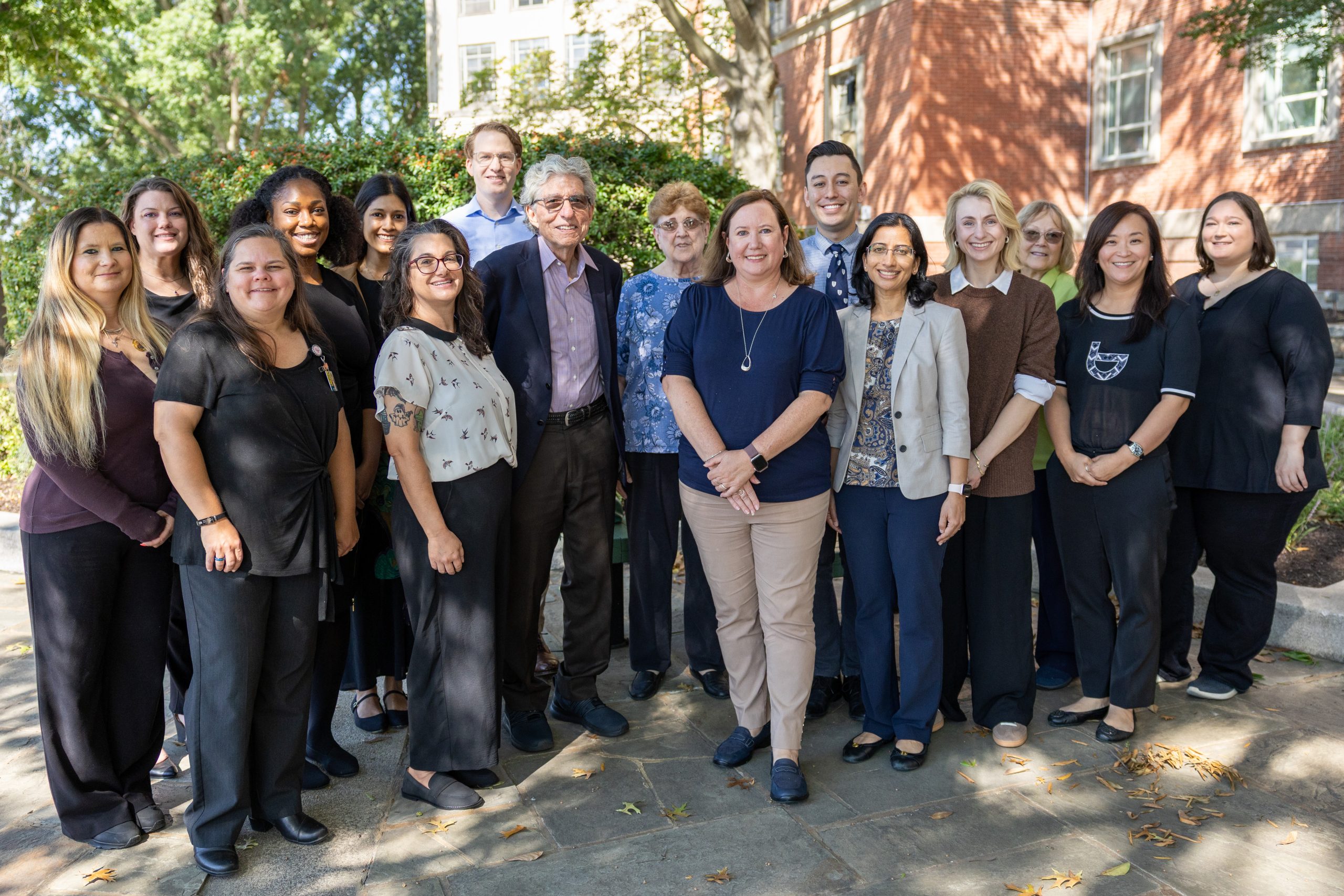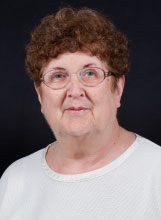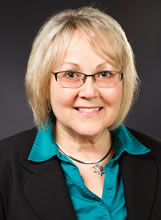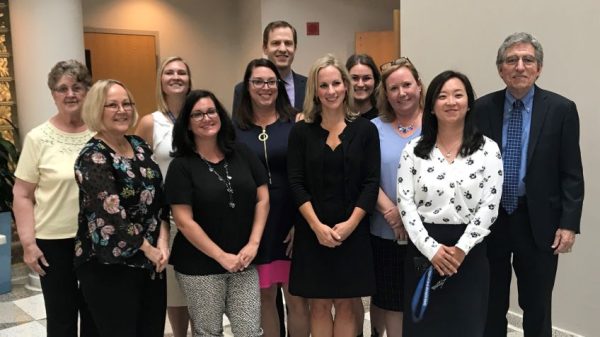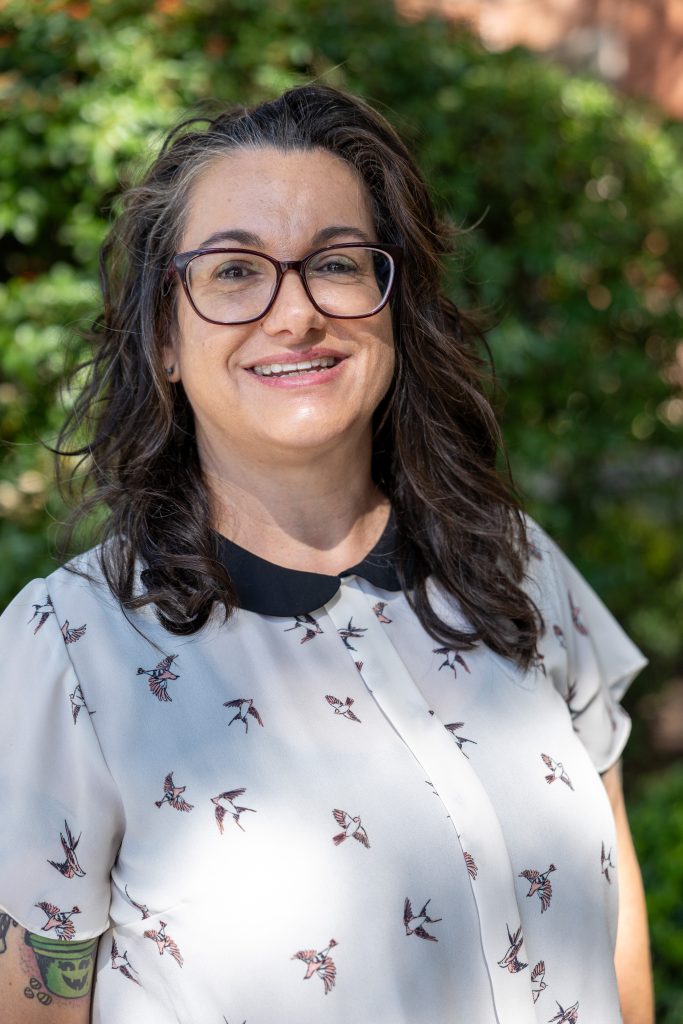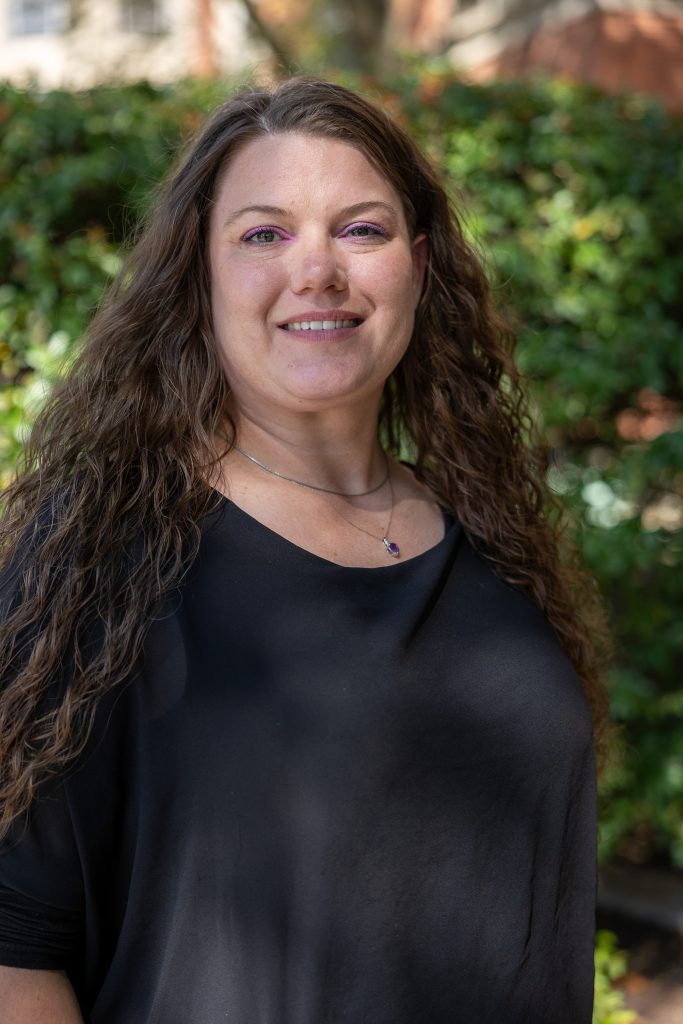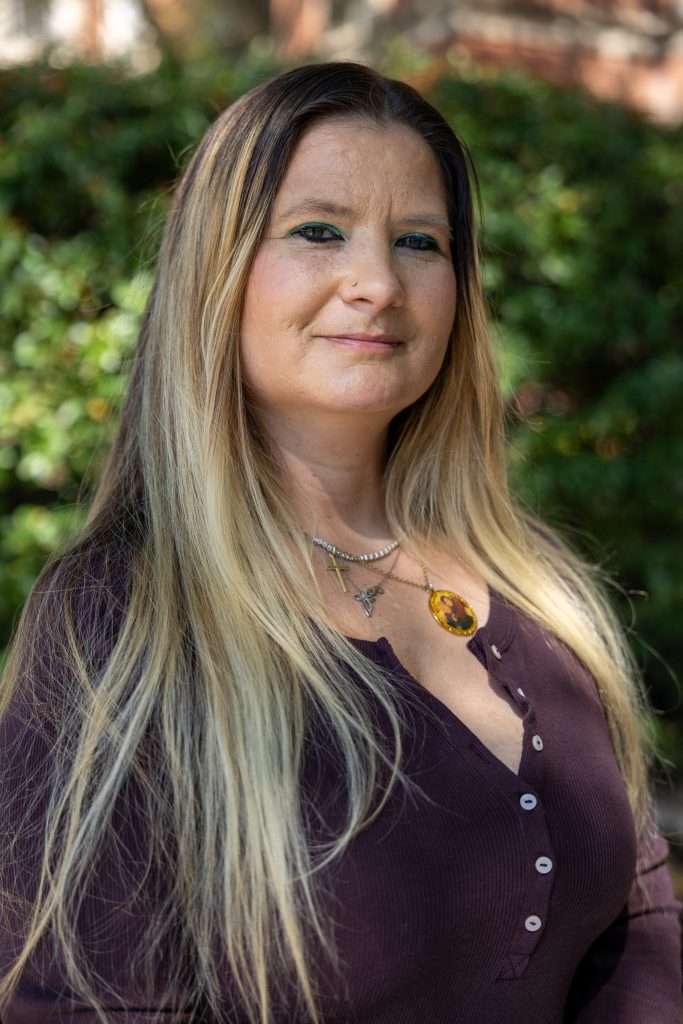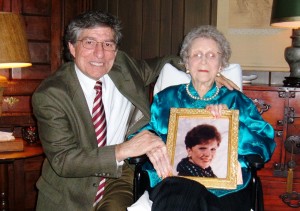PUBLICATIONS FROM WORK DONE AT THE SCLERODERMA CENTER 2004-present:
- Overviews of the Disease and Neglected Manifestations
- Diffuse Skin Disease
- Raynaud’s Phenomenon and Scleroderma Vascular Disease
- Pulmonary Hypertension and Cardiac Disease
- Interstitial Lung Disease
- Gastrointestinal Disease
- Musculoskeletal Disease
- Renal (Kidney) Disease
- Cancer
- Quality of Life and Sexuality
- Geriatrics
- Pediatrics
- Treatment Guidelines
- Immunology, Pathogenesis and Measures of Disease
- Genetics
- Localized Scleroderma/Morphea and Other Skin Disease
- Scleroderma-Like Diseases (Eosinophilic Fasciitis, Scleredema, Scleromyxedema, Nephrogenic Fibrosing Dermopathy)
Overviews of the Disease and Neglected Manifestations
- McMahan ZH, Wigley FM. Novel investigational agents for the treatment of scleroderma. Expert Opin Investig Drugs. 2014 Feb;23(2):183-98.
- Gelber AC, Manno RL, Shah AA, Woods A, Le EN, Boin F, Hummers LK, Wigley FM. Race and association with disease manifestations and mortality in Scleroderma: a 20 year experience at the Johns Hopkins Scleroderma Center and review of the literature. Medicine (Baltimore). 2013 Jul;92(4):191-205.
- McMahan ZM, Hummers LK. Systemic Sclerosis-Challenges for Clinical Practice. Nat Rev Rheum. 2013 Feb;9(2):90-100.
- Shah AA, Wigley FM. My approach to the treatment of scleroderma. Mayo Clinics Proceedings. 2013;88(4):377-93.
- Hummers LK, Wigley FM. In:Imboden J, Hellmann D, Stone J, ed. Current Diagnosis & Treatment of Rheumatic Diseases, 3rd edition. New York:Lange Medical Books/McGraw Hill, 2013:214-223.
- Varga J, Denton CP, Wigley FM (Editors). Scleroderma: from Pathogenesis to Comprehensive Management. Springer-Verlag London Limited, 2012.
- Boin F, Wigley FM. Clinical Features and Treatment of Scleroderma, In “Kelley’s Textbook of Rheumatology, 9th Edition”, Elsevier, 2012:1366-1403.
- Shah AA. Overlooked Manifestations, Varga J, Denton CP, Wigley FM), In Scleroderma: From Pathogenesis to Comprehensive Management, Springer-Verlag London Limited, 2012:559-570.
- Tyndall AJ, Bannert B, Vonk M, Airo P, Cozzi F, Carreira PE, Bancel DF, Allanore Y, Muller-Ladner U, Distler O, Iannone F, Pellerito R, Pileckyle M, Miniati I, Ananieva L, Gurman AB, Damjanov N, Mueller A, Valentini G, Riemekasten G, Tikly M, Hummers L, Henriques MJ, Caramaschi P, Scheja A, Rozman B, Ton E, Kumanovics G, Coleiro B, Feieri E, Szucs G, Von Muhlen CA, Riccieri V, Novak S, Chizzolini C, Kotulska A, Denton C, Coelho PC, Kotter I, Simsek I, de la Pena Lefebvre PG, Hachulla E, Seibold JR, Rednic S, Stork J, Morovic-Vergles J, Walker UA. Causes and risk factors for death in systemic sclerosis: a study from the EULAR Scleroderma Trials and Research (EUSTAR) database. Ann Rheum Dis. 2010 Oct;69(10):1809-15.
- Shah AA, Wigley FM. Often forgotten manifestations of systemic sclerosis. Rheum Dis Clin North Am. 2008 Feb;34 (1):221-38; ix. Review.
- Wigley FM. Systemic sclerosis (scleroderma) is unique among our rheumatic diseases. Preface. Rheum Dis Clin North Am. 2008 Feb;34 (1) : xi-xiii.
- Varga J, Wigley F. Systemic Sclerosis. In: Rich, Shearer, Fleisher, Schroeder, Weyand, Frew, editors. Clinical Immunology (3rd Ed). Elsevier Ltd., London, UK, 2008:813-823.
- Walker UA, Tyndall A, Czirjak L, Denton CP, Bancel DF, Kowal-Bielecka O, Muller-Ladner U, Bocelli-Tyndall C, Matucci-Cerinic M; EUSTAR Co-authors. Clinical risk assessment of organ manifestations in systemic sclerosis – a report from the EULAR Scleroderma Trials and Research (EUSTAR) group data base. Ann Rheum Dis. 2007 Jun; 66(6):754-63.
- Boin F, Wigley FM. Systemic Sclerosis. In: Bartlett SJ, Bingham C, Marcic M, editors. Clinical Care in the Rheumatic Diseases (3rd Ed). ACR. Association of Rheumatology Health Professionals, Atlanta, GA. 2006:193-198.
- Hummers LK, Wigley FM. Scleroderma. In: Imboden J, Hellmann D, Stone J (eds). Current Rheumatology, Diagnosis & Treatment of Rheumatic Diseases, 2nd edition, McGraw-Hill, New York, NY, 2004:189-197.
- Wigley FM. Scleroderma (Systemic Sclerosis). In: Goldman L, Ausiello D, editors. Cecil Textbook of Medicine (22nd Ed). WB Saunders, Orlando, FL. 2004:1670-1677.
Diffuse Skin Disease
- Namas R, Tashkin DP, Furst DE, Wilhalme H, Tseng CH, Roth MD, Kafaja S, Volkmann E, Clements PJ, Khanna D; Participants in the Scleroderma Lung Study I and members of the Scleroderma Lung Study II Research Group. Efficacy of mycophenolate mofetil and oral cyclophosphamide on skin thickness: Post hoc analyses from two randomized placebo-controlled trials. Arthritis Care Res (Hoboken). 2018 Mar;70(3):439-444.
- Sullivan KM, Goldmuntz EA, Keyes-Elstein L, McSweeney PA, Pinckney A, Welch B, Mayes MD, Nash RA, Crofford LJ, Eggleston B, Castina S, Griffith LM, Goldstein JS, Wallace D, Craciunescu O, Khanna D, Folz RJ, Goldin J, St Clair EW, Seibold JR, Phillips K, Mineishi S, Simms RW, Ballen K, Wener MH, Georges GE, Heimfeld S, Hosing C, Forman S, Kafaja S, Silver RM, Griffing L, Storek J, LeClercq S, Brasington R, Csuka ME, Bredeson C, Keever-Taylor C, Domsic RT, Kahaleh MB, Medsger T, Furst DE, SCOT Study Investigators. Myeloablative autologous stem-cell transplantation for severe scleroderma. N Engl J Med. 2018 Jan 4;378(1):35-47.
- Poelman CL, Hummers LK, Wigley FM, Anderson C, Boin F, Shah AA. Intravenous immunoglobulin may be an effective therapy for refractory, active diffuse cutaneous systemic sclerosis. J Rheumatol. 2015 Feb;42(2):236-42.
- Wigley F, Friday RP, Shepard JA, Nazarian RM. Case records of the Massachusetts General Hospital. Case 8-2015. A 68-year-old man with multiple myeloma, skin tightness, arthralgias, and edema. N Engl J Med. 2015 Mar 12:372(11):1056-67.
- Wigley F, Nazarian RM. Case 8-2015: A man with multiple myeloma, skin tightness, arthralgias, and edema. N Engl J Med. 2015 Jun 18;372(25):2466.
- Frech TM Shanmugam VK, Shah AA, Assassi S, Gordon JK, Hant FN, Hinchcliff ME, Steen V, Khanna D, Kayser C, Domsic RT. Treatment of early diffuse systemic sclerosis skin disease. Clin Exp Rheumatol. 2013 Mar-Apr;31(2 Suppl 76):81-8.
- Dezern AE, Styler MJ, Drachman DB, Hummers LK, Jones RJ, Brodsky RA. Repeated treatment with high dose cyclophosphamide for severe autoimmune diseases. Ann J Blood Res. 2013;3(1):84-90.
- Sullivan KM, Wigley FM, Denton CP, van Laar JM, Furst DE. Haemopoietic stem-cell transplantation for systemic sclerosis. Lancet. 2012 Jan 21;379(9812):219; author reply 219-20.
- Le EN, Wigley FM, Shah AA, Boin F, Hummers LK. Long-term experience of mycophenolate mofetil for treatment of diffuse cutaneous systemic sclerosis. Ann Rheum Dis. 2011 Jun;70(6):1104-7.
- DeZern AE, Petri M, Drachman DB, Kerr D, Hammond ER, Kowalski J, Tsai HL, Loeb DM, Anhalt G, Wigley F, Jones RJ, Brodsky RA. High-dose cyclophosphamide without stem cell rescue in 207 patients with aplastic anemia and other autoimmune diseases. Medicine (Baltimore). 2011 Mar;90(2):89-98.
- Khanna D, Clements PJ, Furst DE, Korn JH, Ellman M, Rothfield N, Wigley FM, Moreland LW, Silver R, Kim YH, Steen VD, Firestein GS, Kavanaugh AF, Weisman M, Mayes MD, Collier D, Csuka ME, Simms R, Merkel PA, Medsger TA Jr, Sanders ME, Maranian P, Seibold JR; Relaxin Investigators and the Scleroderma Clinical Trials Consortium. Recombinant human relaxin in the treatment of systemic sclerosis with diffuse cutaneous involvement: a randomized, double-blind, placebo-controlled trial. Arthritis Rheum. 2009 Apr;60(4):1102-11.
- Tehlirian CV, Hummers LK, White B, Brodsky RA, Wigley FM. High dose cyclophosphamide without stem cell rescue in scleroderma. Ann Rheum Dis. 2008 Jun; 67(6): 775-81.
- Postlethwaite AE, Wong WK, Clements P, Chatterjee S, Fessler BJ, Kang AH, Korn J, Mayes M, Merkel PA, Molitor JA, Moreland L, Rothfield N, Simms RW, Smith EA, Spiera R, Steen V, Warrington K, White B, Wigley F, Furst DE. A multicenter, randomized, double-blind, placebo-controlled trial of oral type I collagen treatment in patients with diffuse cutaneous systemic sclerosis: I. Oral type I collagen does not improve skin in all patients, but may improve skin in late-phase disease. Arthritis Rheum. 2008 Jun; 58(6):1810-22.
- Khanna D, Furst DE, Hays RD, Park GS, Wong WK, Seibold JR, Mayes MD, White B, Wigley FM, Weisman M, Barr W, Moreland L, Medsger TA, Steen VD, Martin RW, Collier D, Weinstein A, Lally EV, Varga J, Weiner SR, Andres B, Abeles M, Clements PJ. Minimally important difference in diffuse systemic sclerosis: results from the D-Penicillamine Study. Ann Rheum Dis 2006 Oct; 65(10):1325-9.
- Clements PJ, Seibold JR, Furst DE, Mayes M, White B, Wigley FM, Weisman MD, Barr W, Moreland L, Medsger TA Jr, Steen V, Martin RW, Collier D, Weinstein A, Lally E, Varga J, Weiner SR, Andrews B, Abeles M, Wong WK. High-dose versus low-dose D-penicillamine in early diffuse systemic sclerosis trial: lessons learned. Semin Arthritis Rheum 2004;33(4):249-63.
Raynaud’s Phenomenon and Scleroderma Vascular Disease
- Mecoli CA, Shah AA, Boin F, Wigley FM, Hummers LK. Vascular complications in systemic sclerosis: a prospective cohort study. Clin Rheumatol. 2018 Sep;37(9):2429-2437. doi: 10.1007/s10067-018-4148-5. Epub 2018 May 26.
- McMahan ZH, Wigley FM, Casciola-Rosen L. Risk of digital vascular events in scleroderma patients who have both anticentromere and anti-interferon-inducible protein 16 antibodies. Arthritis Care Res (Hoboken). 2017 June;69(6):922-6.
- Bello RJ, Cooney CM, Melamed E, FolG, Leatherman G, Shah AA, Wigley FM, Hummers LK, Lifchez SD. The therapeutic efficacy of Botulinum Toxin in treating scleroderma-associated Raynaud’s phenomenon: A randomized, double-blind, placebo-controlled clinical trial assessing. Arthritis Rheumatol. 2017 Apr.
- Shapiro SC, Wigley FM. Treating Raynaud phenomenon Beyond staying warm. Cleve Clin J Med. 2017 Oct; 84(10):797-804.
- Seibold JR, Wigley FM. Editorial: Clinical Trials in Raynaud’s Phenomenon: A Spoonful of Sugar (Pill) Makes the Medicine Go Down(in Flames). Arthritis Rheumatol. 2017 Dec; 69(12): 2256-2258. Epub 2017 Nov 17.
- McMahan ZM, Cottrell TR,Wigley FM, Antiochos B, Zambidis ET, Park TS, Gutierrez-Alamillo L, Cimbro R, Rosen A, Casciola-Rosen L. Enrichment of scleroderma vascular disease-associated autoantigens in endothelial lineage cells. Arthritis Rheumatol. 2016;68(10):2540-9.
- Shah AA, Schiopu E, Chatterjee S, Csuka ME, Frech T, Goldberg A, Spiera R, Peng SL, McBride RJ, Cleveland JM, Steen V. The recurrence of digital ulcers in patients with systemic sclerosis after discontinuation of oral Treprostinil. J Rhematol. 2016;43(9):1665-71.
- Wigley FM, Flavahan NA. Raynaud’s phenomenon. N Engl J Med. 2016;375(6):556-65.
- Khanna D, Denton CP, Merkel PA, Krieg T, Le Brun FO, Marr A, Papadakis K, Pope J, Matucci-Cerinic M, Furst DE; DEAL-1 Investigators; DUAL-2 Investigators. Effect of Macitentan on the development of new ischemic digital ulcers in patients with systemic sclerosis: DUAL-1 and DUAL-2 randomized clinical trials. JAMA. 2016;315(18):1975-88.
- McMahan ZH, Shah AA, Vaidya D, Wigley FM, Rosen A, Casciola-Rosen L. Anti-Interferon-Inducible Protein 16 antibodies associate with digital gangrene in patients with scleroderma. Arthritis Rheumatol. 2016 May;68(5):1262-71.
- Paik JJ, Hirpara R, Heller JA, Hummers LK, Wigley FM, Shah AA. Thrombotic complications after radial arterial line placement in systemic sclerosis: A case series. Semin Arthritis Rheum. 2016;46(2):196-9.
- Hughes M, Snapir A, Wilkinson J, Snapir D, Wigley FM, Herrick AL. Prediction and impact of attacks of Raynaud’s phenomenon, as judged by patient perception. Rheumatology. 2015 Aug;54(8):1443-7.
- Cappelli L, Wigley FM. Management of Raynaud phenomenon and Digital Ulcers in Scleroderma. Rheum Dis Clin North Am. 2015 Aug;41(3):419-38.
- Wigley FM, Herrick A, Flavahan N (Editors). Raynaud’s Phenomenon – A Guide to Pathogenesis and Treatment. Springer Science+Business Media, LLC, 2015.
- Fava A, Boin F. Historical Perspective of Raynaud’s Phenomenon. Springer Science+Business Media, LLC, 2015:1-11.
- Shah AA. Traumatic Vasospastic Disease, Wigley FM, Herrick A, Flavahan N (Editors). Raynaud’s Phenomenon – A Guide to Pathogenesis and Treatment. Springer Science+Business Media, LLC, 2015:129-140.
- McMahan ZH, Paik JJ. Raynaud’s Mimics, Wigley FM, Herrick A, Flavahan N (Editors). Raynaud’s Phenomenon – A Guide to Pathogenesis and Treatment. Springer Science+Business Media, LLC, 2015:163-85.
- Hummers LK. Systemic Vasospasm, Wigley FM, Herrick A, Flavahan N (Editors). Raynaud’s Phenomenon – A Guide to Pathogenesis and Treatment. Springer Science+Business Media, LLC, 2015:267-277.
- Wigley FM. Practical Approaches to Treatment: Case Studies, Wigley FM, Herrick A, Flavahan N (Editors). Raynaud’s Phenomenon – A Guide to Pathogenesis and Treatment. Springer Science+Business Media, LLC, 2015:373-381.
- Maverakis E, Patel F, Kronenberg DG, Chung L, Fiorentino D, Allanore Y, Guiducci S, Hesselstrand R, Hummers LK, Duong C, Kahaleh B, Macgregor A, Matucci-Cerinic M, Wollheim FA, Mayes MD, Gershwin ME. International consensus criteria for the diagnosis of Raynaud’s phenomenon. J Autoimmun. 2014 Feb-Mar:48-49:60-5.
- Baron M, Chung L, Gyger G, Hummers L, Khanna D, mayes MD, Pope JE, Shah AA, Steen VD, Steele R, Tatibouet S, Herrick A, Muller-Ladner U, Hudson M. Consensus opinion of a North American Working Group regarding the classification of digital ulcers in systemic sclerosis. Clin Rheumatol. 2014 Feb;33(2):207-14.
- Herrick AL, Murray AK, Ruck A, Rouru J, Moore TL, Whiteside J, Hakulinen P, Wigley F, Snapir A. A double-blind, randomized, placebo-controlled crossover trial of the α2C-adrenoceptor antagonist ORM-12741 for prevention of cold-induced vasospasm in patients with systemic sclerosis. Rheumatology (Oxford). 2014 May;53(5):948-52.
- Sherber NS, Wigley FM. Skin Manifestations of Raynaud’s Phenomenon, Matucci-Cerinic M (ed), In Rheumatic Diseases and the Skin, Springer Science+Business Media New York, 2014:185-190.
- Hummers LK, Dugowson CE, Dechow FJ, Wise RA, Gregory J, Michalek J, Yenokyan G, McGready J, Wigley FM. A multi-centre, blinded, randomized, placebo-controlled, laboratory-based study of MQX-503, a novel topical gel formulation of nitroglycerine, in patients with Raynaud phenomenon. Ann Rheum Dis. 2013 Dec 1;72(12):1962-7.
- Matucci-Cerinic M, Kahaleh B, Wigley FM. Evidence that systemic sclerosis (scleroderma, SSc) is a vascular disease. Arthritis Rheum. 2013 Aug;65(8):1953-62.
- Shah AA, Schiopu E, Hummers LK, Wade M, Phillips K, Anderson C, Wise R, Boin F, Seibold JR, Wigley FM, Rollins KD. Open label study of escalating doses of oral treprostinil diethanolamine in patients with systemic sclerosis and digital iscehmia: pharmacokinetics and correlation with digital perfusion. Arthritis Res Ther. 2013 Apr 18;15(2):R54.
- Sule S, Wigley FM. Raynaud Phenomenon. In: Imboden J, Hellmann D, Stone J, ed. Current Diagnosis & Treatment of Rheumatic Diseases, 3rd edition. New York: Lange Medical Books/McGraw Hill, 2013:209-213.
- Fava A, Wung PK, Wigley FM, Hummers LK, Daya NR, Ghazarian SR, Boin F. Efficacy of Rho-Kinase inhibitor fasudil in secondary Raynaud’s phenomenon. Arthritis Care Res (Hoboken). 2012 Jun;64(6):925-9.
- Wigley FM, Herrick AL. Raynaud’s Phenomenon, Varga J, Denton CP, Wigley FM (eds), In Scleroderma: From Pathogenesis to Comprehensive Management, Springer-Verlag London Limited, 2012:313-330.
- Hummers LK. Vascular Biomarkers, Varga J, Denton CP, Wigley FM (eds), In Scleroderma: From Pathogenesis to Comprehensive Management, Springer-Verlag London Limited, 2012:247-254.
- Wigley FM. Raynaud’s Phenomenon and Sjogren’s Syndrome, Ramos-Casals M, Stone J, Moutsopoulos HM (eds.), In Sjogren’s Syndrome, Springer-Verlag London Limited, 2012:209-225.
- Wigley F, Wung PK. Painful digital ulcers in a scleroderma patient with Raynaud’s phenomenon, Silver RM, Denton CP (eds.), In Case Studies in Systemic Sclerosis, Springer-Verlag London Limited, 2011:95-105.
- Wung PK, Wigley FM. Systemic Sclerosis and Raynaud’s Phenomenon. In Weisman M, Weinblatt ME, Louie JS, & Van Vollenhoven RF (eds). Targeted Treatment for Rheumatic Diseases, 1st Edition. Elsevier, Philadelphia, PA. 2010:157-165.
- McMahan Z, Wigley FM. Raynaud’s phenomenon and digital ischemia: a practical approach to risk stratification, diagnosis and management. Internat J Clin Rheum. 2010 Jun;5(3):355-70.
- Boin F, Franchini S, Colantuoni E, Rosen A, Wigley FM, Casciola-Rosen L. Independent association of anti-beta(2)-glycoprotein I antibodies with macrovascular disease and mortality in scleroderma patients. Arthritis Rheum. 2009 Aug;60(8):2480-9.
- Chung L, Shapiro L, Fiorentino D, Baron M, Shanahan J, Sule S, Hsu V, Rothfield N, Steen V, Martin RW, Smith E, Mayes M, Simms R, Pope J, Kahaleh B, Csuka ME, Gruber B, Colier D, Sweiss N, Gilbert A, Dechow FJ, Gregory J, Wigley FM. MQX-503, a novel formulation of nitroglycerin, improves the severity of Raynaud’s phenomenon: A randomized, controlled trial. Arthritis Rheum. 2009 Feb 26; 60(3):870-7.
- Wigley FM. Vascular Disease in Scleroderma. Clin Rev Allergy Immunol. 2009 June; 36(2-3):150-75.
- Hummers LK, Hall A, Wigley FM, Simons M. Abnormalities in the Regulators of Angiogenesis in Patients with Scleroderma. J Rheumatol. 2009 March; 36(3):576-82.
- Hummers LK. Biomarkers of vascular disease in scleroderma. Rheumatology (Oxford). 2008 Oct;47 Suppl 5; v21-2.
- Huston KK, Stone JH, Wigley FM. Digital ischemia and Raynaud’s phenomenon, In: Ball GV, Bridges Jr SL, editors. Vasculitis. Oxford University Press, New York, NY. 2008:209-223.
- Henness S, Wigley FM. Current drug therapy for scleroderma and secondary Raynaud’s phenomenon: evidence-based review. Curr Opin Rheumatol. 2007 Nov;19(6): 611-8. Review.
- Mulligan-Kehoe MJ, Drinane MC, Mollmark J, Casciola-Rosen L, Hummers LK, Hall A, Rosen A, Wigley FM, Simons M. Antiangiogenic plasma activity in patients with systemic sclerosis. Arthritis Rheum. 2007 Oct; 56(10):3448-58.
- Wigley FM. Clinical manifestations and diagnosis of the Raynaud phenomenon. In: UpToDate, Rose, BD (Ed), UpToDate, Waltham, MA, 2007.
- Hummers LK. Microvascular Damage in Scleroderma and the Use of Biomarkers to Detect it and Monitor Activity. Curr Rheumatol Rep. 2006 Apr; 8(2):131-7.
- Boin F, Wigley FM. Understanding, assessing and treating Raynaud’s phenomenon. Curr Opin Rheumatol. 2005 Nov;17(6):752-60.
- Grader-Beck T, Wigley FM. Raynaud’s phenomenon in mixed connective tissue disease. Rheum Dis Clin North Am 2005;31(3):465-81, vi. Review.
- Wise RA, Wigley FM, White B, Leatherman G, Zhong J, Krasa H, Kambayashi J, Orlandi C, Czerwiec FS. Efficacy and tolerability of a selective alpha (2C)-adrenergic receptor blocker in recovery from cold-induced vasospasm in scleroderma patients: A single-center, double-blind, placebo-controlled, randomized crossover study. Arthritis Rheum 2004;50(12):3994-4001.
- Hummers LK, Wigley FM. Management of Raynaud’s phenomenon and digital ischemic lesions in scleroderma. Rheum Dis Clin North Am. 2003 May;29(2):293-313. Review.
- Wigley FM, Flavahan NA. Raynaud’s phenomenon. Rheum Dis Clin North Am. 1996 Nov;22(4):765-61. Review.
Pulmonary Hypertension and Cardiac Disease
- Simpson CE, Damico RL, Hummers L, Khair RM, Kolb TM, Mathai SC. Serum uric acid as a marker of disease risk, severity, and survival in systemic sclerosis-related pulmonary arterial hypertension. Pulm Circ. 2019 Jul 29;9(3): eCollection 2019 Jul-Sep. PMID: 31384431; PMCID: PMC6664664
- Mullin CJ, Khair RM, Damico RL, Kolb TM, Hummers LK, Hassoun PM, Steen VD, Mathai SC; PHAROS Investigators. Validation of the REVEAL Prognostic Equation and Risk Score Calculator in Incident Systemic Sclerosis-Associated Pulmonary Arterial Hypertension. Arthritis Rheumatol. 2019 May 8. PMID: 31066998
- Hsu VM, Chung L, Hummers LK, Shah A, Simms R, Bolster M, Hant, FN, Silver RM, Fischer A, Hinchcliff ME, Varga J, Goldberg AZ, Derk CT, Schiopu E, Khanna D, Shapiro LS, Domsic RT, Medsger T, Mayes MD, Furst D, Csuka ME, Molitor JA, Saketkoo LA, Salazar CR, Steen VD. Risk factors for mortality and cardiopulmonary hospitalization in systemic sclerosis patient at risk for pulmonary hypertension, in the PHAROS registry. J Rheumatol. 2019 Feb. PMID: 30275260
- Hsu S, Kokkonen-Simon KM, Kirk JA, Kolb TM, Damico RL, Mathai SC, Mukherjee M, Shah AA, Wigley FM, Margulies KB, Hassoun PM, Halushka MK, Tedford RJ, Kass DA. Right Ventricular Myofilament Functional Differences in Humans With Systemic Sclerosis-Associated Versus Idiopathic Pulmonary Arterial Hypertension. Circulation. 2018 May 29;137(22):2360-2370. Epub 2018 Jan 19. PMID: 29352073
- Kolstad KD, Li S, Steen V, Chung L; PHAROS Investigators.Long-Term Outcomes in Systemic Sclerosis-Associated Pulmonary Arterial Hypertension From the Pulmonary Hypertension Assessment and Recognition of Outcomes in Scleroderma Registry (PHAROS). Chest. 2018 Oct;154(4):862-871. Epub 2018 May 16. PMID: 29777655
- Mukherjee M, Mercurio V, Tedford R, Shah AA, Hsu S, Mullin C, Sato T, Damico R, Kolb T, Mathai S, Hassoun P. Right Ventricular Longitudinal Strain is Diminished in Systemic Sclerosis Compared to Idiopathic Pulmonary Arterial Hypertension. European Respiratory Journal, 2017;50(5). 2017; PMID: 29167303.
- Chung L, Fairchild RM, Furst DE, Li S, Alkassah, Bolster MB, Csuka ME, Derk CT, Domsic RT, Fischer A, Frech T, Gomberg-Maitland M, Gordon JK, Hinchcliff M, Hsu V, Hummers LK, Khanna D, Medsger TA, Molitor JA, Preston IR, Schiopu E, Shapiro L, Hant F, Silver R, Simms R, Varga J, Steen VD, Zamanian RT. Utility of B-type natriuretic peptides in the assessment of patients with systemic sclerosis-associated pulmonary hypertension in the PHAROS registry. Clin Exp Rheumatol. 2016 Nov 10. [Epub ahead of print] PMID: 27908301
- Cao Z, Mathai SC, Hummers LK, Shah AA, Wigley FM, Lechtzin N, Hassoun PM, Girgis RE. Exhaled nitric oxide in pulmonary arterial hypertension associated with systemic sclerosis. Pulm Circ. 2016;6(4):545-550. PMID: 28090297; PMCID: PMC5210065
- Mukherjee M, Chung SE, Ton VK, Tedford RJ, Hummers LK, Wigley FM, Abraham TP, Shah AA. Unique abnormalities in right ventricular longitudinal strain in systemic sclerosis patients. Circ Cardiovasc Imaging. 2016;9(6):pii:e003792. PMID: 27266598; PMCID: PMC4902176
- Frech TM, Revelo MP, Ryan JJ, Shah AA, Gordon J, Domsic R, Hant F, Assassi S, Shanmugam VK, Hinchcliff M, Steen V, Khanna D, Bernstein EJ, Cox J, Luem N, Drakos S. Cardiac metabolomics and autopsy in a patient with early diffuse systemic sclerosis presenting with dyspnea: a case report. J Med Case Rep. 2015;9:136; PMCID: PMC4469401.
- Hsu S, Houston BA, Tampakakis E, Bacher AC, Rhodes PS, Mathai SC, Damico RL, Kolb TM, Hummers LK, Shah AA, McMahan Z, Corona-Villalobos CP, Zimmerman SL, Wigley FM, Hassoun PM, Kass DA, Tedford RJ. Right ventricular functional reserve in pulmonary arterial hyprtension. Circulation. 2016;133(24):2413-22. PMID: 27169739; PMCID: PMC4907868
- McMahan Z, Schoenhoff F, Van Eyk JE, Wigley FM, Hummers LK. Biomarkers of pulmonary hypertension in patients with scleroderma: a case-control study. Arthritis Res Ther. 2015 Aug 6;17:201. PMID: 26245195; PMCID: PMC4527208
- Fischer A, Swigris JJ, Bolster MB, Chung L, Csuka ME, Domsic R, Frech T, Hinchcliff M, Hsu V, Hummers LK, Gomberg-Maitland M, Mathai SC, Simms R, Steen VD. Pulmonary hypertension and interstitial lung disease within PHAROS: impact of extent of fibrosis and pulmonary physiology on cardiac haemodynamic parameters. Clin Exp Rheumatol. 2014 Nov-Dec;32(6 Suppl 86):S-109-14. PMID: 25372796
- Boin F, Erre GL, Posadino AM, Cossu A, Giordo R, Spinetti G, Passiu G, Emanueli C, Pintus G. Oxidative stress-dependent activation of collagen synthesis is induced in human pulmonary smooth muscle cells by sera from patients with scleroderma-associated pulmonary hypertension. Orphanet J Rare Dis. 2014 Aug 1;9:123. PMID: 25085432
- Hsu VM, Chung L, Hummers LK, Wigley F, Simms R, Bolster M, Silver R, Fischer A, Hinchcliff ME, Varga J, Goldberg AZ, Derk CT, Schiopu E, Khanna D, Shapiro LS, Domsic RT, Medsger T, Mayes MD, Furst D, Csuka ME, Molitor JA, Alkassab F, Steen VD. Development of pulmonary hypertension in a high risk population with systemic sclerosis in the Pulmonary Hypertension Assessment and Recognition of Outcomes in Scleroderma (PHAROS) cohort study. Semin Arthritis Rheum. 2014 Aug;44(1):55-62. PMID: 24709277
- Blanco I, Mathai S, Shafiq M, Boyce D, Kolb TM, Chami H, Hummers LK, Housten T, Chaisson N, Zaiman AL, Wigley FM, Tedford RJ, Kass DA, Damico R, Girgis RE, Hassoun PM. Severity of systemic sclerosis-associated pulmonary arterial hypertension in African Americans. Medicine (Baltimore). 2014 Jul;93(5):177-85. PMID: 25181310; PMCID: PMC4602454
- Chung L, Domsic RT, Lingala B, Alkassab F, Bolster M, Csuka ME, Derk C, Fischer A, Frech T, Furst DE, Gomberg-Maitland M, Hinchcliff M, Hsu V, Hummers LK, Khanna D, Medsger TA Jr, Molitor JA, Preston IR, Schiopu E, Shapiro L, Silver R, Simms R, Varga J, Gordon JK, Steen VG. Survival and predictors of mortality in systemic sclerosis associated pulmonary arterial hypertension: Outcomes from the PHAROS registry. Arthritis Care Res (Hoboken). 2014 Mar;66(3):489-95. PMID: 23983198
- Avouac J, Huscher D, Furst DE, Opitz CF, Distler O, Allanore Y; for the EPOSS group. Expert consensus for performing right heart catheterization for suspected pulmonary arterial hypertension in systemic sclerosis: a Delphi consensus study with cluster analysis. Ann Rheum Dis. 2014 Jan;73(1):191-7. PMID: 23349131
- Tedford RJ, Mudd JO, Girgis RE, Mathai SC, Zaiman AL, Housten-Harris T, Boyce D, Kelemen BW, Bacher AC, Shah AA, Hummers LK, Wigley FM, Russell SD, Saggar R, Saggar R, Maughan WL, Hassoun PM, Kass DA. Right ventricular dysfunction in systemic sclerosis associated pulmonary arterial hypertension. Circulation: Heart Failure. 2013 Sep 1;6(5):953-63. PMID: 23797369
- Shah AA, Chung, S-E, Wigley FM, Wise RA, Hummers LK. Changes in estimated right ventricular systolic pressure predict mortality and pulmonary hypertension in a cohort of scleroderma patients. Ann Rheum Dis. 2013 Jul;72(7):1136-40. PMID: 22887850
- Bae S, Saggar R, Bolster MB, Chung L, Csuka ME, Derk C, Domsic R, Fischer A, Frech T, Goldberg A, Hinchcliff M, Hsu V, Hummers L, Schiopu E, Mayes MD, McLaughlin V, Molitor J, Naz N, Furst DE, Maranian P, Steen V, Khanna D. Baseline characteristics and follow-up in patients with normal haemodynamics versus borderline mean pulmonary arterial pressure in systemic sclerosis: results from the PHAROS registry. Ann Rheum Dis. 2012 Aug;71(8):1335-42. PMID: 22307943
- Cheadle C, Berger AE, Mathai SC, Grigoryev DN, Watkins TN, Sugawara Y, Barkataki S, Fan J, Boorgula M, Hummers L, Zaiman AL, Girgis R, McDevitt MA, Johns RA, Wigley F, Barnes KC, Hassoun PM. Erythroid-specific transcriptional changes in PBMCs from pulmonary hypertension patients. PLoS One. 2012 Apr;7(4):e34951. PMID: 22545094; PMCID: PMC3335832
- Wigley FM. Overview: Cardiovascular Manifestations and Management, Varga J, Denton CP, Wigley FM (eds), In Scleroderma: From Pathogenesis to Comprehensive Management, Springer-Verlag London Limited, 2012:311-312.
- Grader-Beck T, Boin F, von Gunten S, Smith D, Rosen A, Bochner BS. Antibodies recognizing sulfated carbohydrates are prevalent in systemic sclerosis and associated with pulmonary vascular disease. Ann Rheum Dis. 2011 Dec;70(12):2218-24. PMID: 21873333
- Mathai SC, Sibley CT, Forfia PR, Mudd JO, Fisher MR, Tedford RJ, Lechtzin N, Boyce D, Hummers LK, Housten T, Zaiman AL, Girgis RE, Hassoun PM. Tricuspid annular plane systolic excursion is a robust outcome measure in systemic sclerosis-associated pulmonary arterial hypertension. J Rheumatol. 2011 Nov;38(11):2410-8. PMID: 21965638
- Campo A, Mathai SC, Le Pavec J, Zaiman AL, Hummers LK, Boyce D, Housten T, Lechtzin N, Chami H, Girgis RE, Hassoun PM. Outcomes of hospitalization for right heart failure in pulmonary arterial hypertension. Eur Respir J. 2011 Aug;38(2):359-67. PMID: 21310884
- Le Pavec J, Girgis RE, Lechtzin N, Mathai SC, Launay D, Hummers LK, Zaiman A, Sitbon O, Simonneau G, Humbert M, Hassoun PM. Systemic sclerosis-related pulmonary hypertension associated with interstitial lung disease: impact of pulmonary arterial hypertension therapies. Arthritis Rheum. 2011 Aug;63(8):2456-64. PMID: 21538327
- Boueiz A, Mathai SC, Hummers LK, Hassoun PM. Cardiac complications of systemic sclerosis: recent progress in diagnosis. Curr Opin Rheumatol. 2010 Nov;22(6):696-703. PMID: 20657283
- Campo A, Mathai SC, Le Pavec J, Zaiman AL, Hummers LK, Boyce D, Housten T, Champion HC, Lechtzin N, Wigley FM, Girgis RE, Hassoun PM. Hemodynamic predictors of survival in scleroderma-related pulmonary arterial hypertension. Am J Respir Crit Care Med. 2010 Jul 15;182(2):252-60. PMID: 20339143; PMCID: PMC2913238
- Shah AA, Wigley FM, Hummers LK. Telangiectases in scleroderma: a potential clinical marker of pulmonary arterial hypertension. J Rheumatol. 2010 Jan;37(1):98-104. PMID: 19955048
- Mathai SC, Bueso M, Hummers LK, Boyce D, Lechtzin N, Le Pavec J, Campo A, Champion HC, Housten T, Forfia PR, Zaiman AL, Wigley FM, Girgis RE, Hassoun PM. Disproportionate elevation of N-terminal pro-brain natriuretic peptide in scleroderma-related pulmonary hypertension. Eur Respir J. 2010 Jan;35(1):95-104.PMID: 19643943
- Allanore Y, Meune C, Vonk MC, Airo P, Hachulla E, Caramaschi P, Riemekasten G, Cozzi F, Beretta L, Derk CT, Komosi A, Farge D, Balbir A, Riccieri V, Distler O, Chiala A, del papa N, Simic Pasalic K, Ghio M, Stamenkovic B, Rednic S, Host N, Pellerito R, Zegers E, Kahan A, Walker UA, Matucci-Cerinic and EUSTAR Research Group. Prevalence and factors associated with left ventricular dysfunction in the EULAR Scleroderma Trial and Research group (EUSTAR) database of systemic sclerosis patients. Ann Rheum Dis. 2010 Jan;69(1):218-21. PMID: 19279015
- Girgis RE, Mathai SC, Wigley FM, Hassoun PM. Survival in systemic sclerosis-related pulmonary arterial hypertension in the modern treatment era. Am J Respir Crit Care Med. 2009 Dec 15;180(12):1280; author reply 1280-1. PMID: 19949241
- Badesch DB, McGoon MD, Barst RJ, Tapson VF, Rubin LJ, Wigley FM, Kral KM, Raphiou IH, Crater GD. Longterm survival among patients with scleroderma-associated pulmonary arterial hypertension treated with intravenous epoprostenol. J Rheumatol. 2009 Oct;36(10):2244-9. PMID: 19723905
- Mathai SC, Hummers LK, Champion HC, Wigley FM, Zaiman A, Hassoun PM, Girgis RE. Survival in pulmonary hypertension associated with the scleroderma spectrum of diseases: impact of interstititial lung disease. Arthritis Rheum. 2009 Feb;60(2):569-77. PMID: 19180517
- Grigoryev DN, Mathai SC, Fisher MR, Girgis RE, Zaiman AL, Houston-Harris T, Cheadle C, Gao L, Hummers LK, Champion HC, Garcia JG, Wigley FM, Tuder RM, Barnes KC, Hassoun PM. Identification of candidate genes in scleroderma-related pulmonary arterial hypertension. Transl Res. 2008 Apr;151 (4) :197-207. PMID: 18355767; PMCID: PMC2359723
- Distler O, Behrens F, Pittrow D, Huscher D, Denton CP, Foeldvari I, Humbert M, Matucci-Cerinic M, Nash P, Opitz CF, Rubin LJ, Seibold JR, Furst DE for the other coauthors of the EPOSS-OMERACT group. Defining appropriate outcome measures in pulmonary arterial hypertension related to systemic sclerosis: Delphi consensus study with cluster analysis. Arthritis Rheum. 2008 Jun 15; 59(6):867-75. PMID: 18512721
- Soong TK, Barouch LA, Champion HC, Wigley FM, Halushka MK. New clinical and ultrastructural findings in hydroxychloroquine-induced cardiomyopathy – a report of 2 cases. Hum Pathol. 2007 Dec; 38(12):1858-63. PMID: 18061791
- Fisher MR, Mathai SC, Champion HC, Girgis RE, Housten-Harris T, Hummers L, Krishnan JA, Wigley FM, Hassoun PM. Clinical differences between idiopathic and scleroderma-related pulmonary hypertension. Arthritis Rheum. 2006 Sep; 54(9):3043-50. PMID: 16947776
- Chang B, Schachna L, White B, Wigley FM, Wise RA. Natural history of mild-moderate pulmonary hypertension and the risk factors for severe pulmonary hypertension in scleroderma. J Rheumatol 2006;33(2):269-74. PMID: 16465657
- Wigley FM, Lima JA, Mayes M, McLain D, Chapin JL, Ward-Able C. Reply. Arthritis Rheum 2006;54(1):380-1.
- Girgis RE, Mathai SC, Krishnan JA, Wigley FM, Hassoun PM. Long-term outcome of bosentan treatment in idiopathic pulmonary arterial hypertension and pulmonary arterial hypertension associated with the scleroderma spectrum of diseases. J Heart Lung Transplant 2005;24(10):1626-31. PMID: 16210140
- Wigley FM, Lima JA, Mayes M, McLain D, Chapin JL, Ward-Able C. The prevalence of undiagnosed pulmonary arterial hypertension in subjects with connective tissue disease at the secondary health care level of community-based rheumatologists (the UNCOVER study). Arthritis Rheum 2005;52(7):2125-32. PMID: 15986394
Interstitial Lung Disease
- Volkmann ER, Tashkin DP, Sim M, Li N, Goldmuntz E, Keyes-Elstein L, Pinckney A, Furst DE, Clements PJ, Khanna D, Steen V, Schraufnagel DE, Arami S, Hsu V, Roth MD, Elashoff RM, Sullivan KM; SLS I and SLS II study groups. Short-term progression of interstitial lung disease in systemic sclerosis predicts long-term survival in two independent clinical trial cohorts. Ann Rheum Dis. 2019 Jan;78(1):122-130. PMID: 30409830; PMCID: PMC6311344
- Tashkin DP, Roth MD, Clements PJ, Furst DE, Khanna D, Kleerup EC, Goldin J, Arriola E, Volkmann ER, Kafaja S, Silver R, Steen V, Strange C, Wise R, Wigley FM, Mayes M, Riley DJ, Hussain S, Assassi S, Hsu VM, Patel B, Phillips K, Martinez F, Golden J, Connolly MK, Varga J, Dematte J, Hinchcliff ME, Fischer A, Swigris J, Meehan R, Theodore A, Simms R, Volkov S, Schraufnagel DE, Scholand MB, Frech T, Molitor JA, Highland K, Read CA, Fritzler MJ, Kim GH, Tseng CH, Elashoff RM; Scleroderma Lung Study II Investigators. Mycophenolate mofetil versus oral cyclophosphamide in scleroderma-related interstitial lung disease (SLS II): A randomized controlled, double-blind, parallel group trial. Lancet Respir Med. 2016;4(9):708-19. PMID: 27469583; PMCID: PMC5014629
- Cottrell TR, Wise RA, Wigley FM, Boin F. The degree of skin involvement identifies distinct lung disease outcomes and survival in systemic sclerosis. Ann Rheum Dis. 2014 Jun;73(6):1060–6. PMID: 23606705
- Saketkoo LA, Mittoo S, Huscher D, Khanna D, Dellaripa PF, Distler O, Flaherty KR, Frankel S, Oddis CV, Denton CP, Fischer A, Kowal-Bielecka OM, Lesage D, merkel PA, Phillips K, Pittrow D, Swigris J, Antoniou K, Baughman RP, Castelino FV, Christmann RB, Christopher-Stine L, Collard HR, Cottin V, Danoff S, Highland KB, Hummers L, Shah AA, Kim DS, Lynch DA, Miller FW, Proudman SM, Richeldi L, Ryu JH, Sandorfi N, Sarver C, Wells AU, Strand V, Matteson EL, Brown KK, Seibold JR. Connective tissue disease related interstitial lung diseases and idiopathic pulmonary fibrosis: provisional core sets of domains and instruments for use in clinical trials. Thorax. 2014 May;69(5):436-444. PMID: 24368713
- Saketkoo LA, Mittoo S, Frankel S, Lesage D, Sarver C, Phillips K, Strand V, Matteson EL; OMERACT Connective Tissue Disease-Interstitial Lung Diseases Working Group; Delphi Process Collaborators. Reconciling healthcare professional and Patient perspectives in the development of disease activity and response criteria in connective tissue disease-related interstitial lung diseases. J Rheumatol. 2014 Apr;41(4):792-8. PMID: 24488412
- Mittoo S, Wigley FM, Wise RA, Woods A, Xiao H, Hummers LK. Long term effects of cyclophosphamide treatment on lung function and survival in scleroderma patients with interstitial lung disease. Open Rheumatol J. 2011 Jan 13;5:1-6. PMID: 21552414; PMCID: PMC3087310
- Roth MD, Tseng CH, Clements PJ, Furst DE, Tashkin DP, Goldin JG, Khanna D, Kleerup EC, Li N, Elashoff D, Elashoff RM; Scleroderma Lung Study Research Group. Predicting treatment outcomes and responder subsets in scleroderma-related interstitial lung disease. Arthritis Rheum. 2011 Sep;63(9):2797-808.PMID: 21547897
- Luzina IG, Todd NW, Nacu N, Lockatell V, Choi J, Hummers LK, Atamas SP. Regulation of pulmonary inflammation and fibrosis through expression of integrins alphaVbeta3 and alphaVbeta5 on pulmonary T lymphocytes. Arthritis Rheum. 2009 May;60(5):1530-9. PMID: 19404954; PMCID: PMC2838614
- Goldin JG, Lynch DA, Strollo DC, Suh RD, Schraufnagel DE, Clements PJ, Elashoff RM, Furst DE, Vasunilashorn S, McNitt-Gray MF, Brown MS, Roth MD, Tashkin DP; Scleroderma Lung Study Research Group. High-resolution CT scan findings in patients with symptomatic scleroderma-related interstitial lung disease. Chest. 2008 Aug; 134(2):358-67. PMID: 18641099
- Boin F, De Fanis U, Bartlett SJ, Wigley FM, Rosen A, Casolaro V. T cell polarization identifies distinct clinical phenotypes in scleroderma lung disease. Arthritis Rheum, 2008 Apr; 58(4):1165-74. PMID: 18383361; PMCID: PMC2662772
- Strange C, Bolster MB, Roth MD, Silver RM, Theodore A, Goldin J, Clements P, Chung J, Elashoff RM, Suh R, Smith EA, Furst DE, Tashkin DP, The Scleroderma Lung Study Research Group. Brochoalveolar lavage and response to cyclophosphamide in scleroderma interstitial lung disease. Am J Respir Crit Care Med. 2008 Jan;177(1):91-8. PMID: 17901414; PMCID: PMC2176114
- Mittoo S, Wigley FM, Wise R, Xiao H, Hummers L. Persistence of an abnormal BAL after cyclophosphamide treatment in scleroderma interstitial lung disease. Arthritis Rheum. 2007 Dec; 56(12):4195-202. PMID: 18050251
- Tashkin DP, Elashoff R, Clements PJ, Roth MD, Furst DE, Silver RM, Goldin J, Arriola E, Strange C, Bolster MB, Seibold JR, Riley DJ, Hsu VM, Varga J, Schraufnagel D, Theodore A, Simms R, Wise R, Wigley F; Scleroderma Lung Study Research Group. Effects of 1-year treatment with cyclophosphamide on outcomes at 2 years in scleroderma lung disease. Am J Respir Crit Care Med. 2007 Nov 15; 176(10):1026-34. PMID: 17717203; PMCID: PMC2078679
- Khanna D, Yan X, Tashkin DP, Furst DE, Elashoff R, Roth MD, Silver R, Strange C, Bolster M, Seibold JR, Riley DJ, Hsu VM, Varga J, Schraufnagel DE, Theodore A, Simms R, Wise R, Wigley F, White B, Steen V, Read C, Mayes M, Parsley E, Mubarak K, Connolly MK, Golden J, Olman M, Fessler B, Rothfield N, Metersky M, Clements PJ; Scleroderma Lung Study Group. Impact of oral cyclophosphamide on health-related quality of life in patients with active scleroderma lung disease: results from the scleroderma lung study. Arthritis Rheum. 2007 May; 56(5):1676-84. PMID: 17469162
- Schachna L, Medsger TA, Dauber JH, Wigley FM, Braunstein NA, White B, Steen VD, Conte JV, Yang SC, McCurry KR, Borja MC, Plaskon DE, Orens JB, Gelber AC. Lung transplantation in scleroderma compared to idiopathic pulmonary fibrosis and idiopathic pulmonary arterial hypertension. Arthritis Rheum 2006 Dec; 54(12):3954-61. PMID: 17133609
- Tashkin DP, Elashoff R, Clements PJ, Goldin J, Roth MD, Furst DE, Arriola E, Silver R, Strange C, Bolster M, Seibold JR, Riley DJ, Hsu VM, Varga J, Schraufnagel DE, Theodore A, Simms R, Wise R, Wigley FM, White B, Steen V, Read C, Mayes M, Parsley E, Mubarak K, Connolly K, Golden J, Olman M, Fessler B, Rothfield N, Metersky M, for the Scleroderma Lung Study Research Group. Cyclophosphamide versus placebo in scleroderma lung disease. N Engl J Med 2006 Jun; 354(25)2655-66. PMID: 16790698
- Khanna D, Clements PJ, Furst DE, Chon Y, Elashoff R, Roth MD, Sterz MG,Chung J, FitzGerald JD, Seibold JR, Varga J, Theodore A, Wigley FM, Silver RM,Steen VD, Mayes MD, Connolly MK, Fessler BJ, Rothfield NF, Mubarak K, Molitor J, Tashkin DP; Scleroderma Lung Study Group. Correlation of the degree of dyspnea with health-related quality of life,functional abilities, and diffusing capacity for carbon monoxide in patients with systemic sclerosis and active alveolitis: results from the Scleroderma Lung Study. Arthritis Rheum. 2005;52(2):592-600. PMID: 15692967
Gastrointestinal Disease
- McMahan ZH, Domsic RT, Zhu L, Medsger TA, Casciola-Rosen L, Shah AA. Anti-RNPC-3 (U11/U12) Antibodies in Systemic Sclerosis in Patients With Moderate-to-Severe Gastrointestinal Dysmotility. Arthritis Care Res (Hoboken). 2019 Sep;71(9):1164-1170. PMCID: PMC6430701
- McMahan ZH. Gastrointestinal involvement in systemic sclerosis: an update. Curr Opin Rheumatol. 2019 Aug 5. PMID: 31389815
- Dein E, Kuo PL, Hong YS, Hummers LK, Mecoli CA, McMahan ZH. Evaluation of risk factors for pseudo-obstruction in systemic sclerosis. Semin Arthritis Rheum. 2019 May 23. PMID: 31202479
- Baron M, Kahaleh B, Bernstein EJ, Chung L, Clements PJ, Denton C, Domsic RT, Ferdowsi N, Foeldvari I, Frech T, Gordon JK, Hudson M, Johnson SR, Khanna D, McMahan Z, Merkel PA, Narain S, Nikpour M, Pauling JD, Ross L, Valenzuela Vergara AM, Vacca A. An Interim Report of the Scleroderma Clinical Trials Consortium Working Groups. J Scleroderma Relat Disord. 2019 Feb;4(1):17-27. PMID: 30906878
- McMahan ZH, Frech T, Berrocal V, Lim D, Bruni C, Matucci-Cerinic M, Smith V, Melsens K, Proudman S, Zhang J, Mendoza F, Woods M, Khanna D. Longitudinal Assessment of Patient-reported Outcome Measures in Systemic Sclerosis Patients with Gastroesophageal Reflux Disease – Scleroderma Clinical Trials Consortium. J Rheumatol. 2019 Jan;46(1):78-84. PMID: 30442827
- McMahan ZH, Hummers LK. Gastrointestinal involvement in systemic sclerosis: diagnosis and management. Curr Opin Rheumatol. 2018 Nov;30(6):533-540. PMID: 30234725
- Miller JB, Gandhi N, Clarke J, McMahan Z. Gastrointestinal Involvement in Systemic Sclerosis: An Update. J Clin Rheumatol. 2018 Sep;24(6):328-337. PMID: 29095721 PMCID: PMC6110377
- McMahan ZH, Paik JJ, Wigley FM, Hummers LK. Determining the Risk Factors and Clinical Features Associated With Severe Gastrointestinal Dysmotility in Systemic Sclerosis. Arthritis Care Res (Hoboken). 2018 Sep;70(9):1385-1392. PMID: 29193842
- Adler BL, Russell JW, Hummers LK, McMahan ZH. Symptoms of Autonomic Dysfunction in Systemic Sclerosis Assessed by the COMPASS-31 Questionnaire. J Rheumatol. 2018 Aug;45(8):1145-1152. PMID: 29907667
- Ahuja NK, Mische L, Clarke JO, Wigley FM, McMahan ZH. Pyridostigmine for the treatment of gastrointestinal symptoms in systemic sclerosis. Semin Arthritis Rheum. 2018 Aug;48(1):111-116. PMID: 29397195
- Nagaraja V, McMahan ZH, Getzug T, Khanna D. Management of gastrointestinal involvement in scleroderma. Curr Treatm Opt Rheumatol. 2015 Mar 1;1(1):82-105. PMID: 26005632
- Roberts CGP, Hummers LK, Ravich WJ, Wigley FM, Hutchins GM. A case-controlled study of the pathology of esophageal disease in systemic sclerosis (scleroderma). GUT 2006 Dec; 55(12):1697-703. PMID: 16527835; PMCID: PMC1856462
Musculoskeletal Disease
- .Kwakkenbos L, Sanchez TA, Turner KA, Mouthon L, Carrier ME, Hudson M, van den Ende CHM, Schouffoer AA, Welling JJKC, Sauvé M, Thombs BD; the SPIN Investigators. The association of sociodemographic and disease variables with hand function: a Scleroderma Patient-centered Intervention Network cohort study.Clin Exp Rheumatol. 2018 Jul-Aug;36 Suppl 113(4):88-94. Epub 2018 Sep 29. PMID: 30277865
- Paik JJ. Muscle disease in Scleroderma.Curr Opin Rheumatol. 2018 Nov;30(6):576-580. PMID 30148800
- Gelber AC, Brener MI, O’Connell K, Wu M, Paik JJ, Albayda JF. Febrile Calcinosis in Scleroderma. Am J Med. 2018 Dec;131(12):e500-e501. PMID: 30076824
- Paik JJ, Wigley FM, Shah AA, Corse AM, Casciola-Rosen L, Hummers LK, Mammen AL. Association of Fibrosing Myospathy in Systemic Sclerosis and Higher Mortality. Arthritis Care Res(Hoboken). 2017 Nov; 69(11):1764-70. PMID: 28544788
- Paik JJ, Mammen AL, Wigley FM, Shah AA, Hummers LK, Polydefkis M. Symptomatic and electrodiagnostic features of peripheral neuropathy in scleroderma. Arthritis Care Res (Hoboken). 2016 Aug;68(8):1150-7. PMID: 26663579
- Paik JJ. Myopathy in scleroderma and in other connective tissue diseases. Curr Opin Rheumatol. 2016 Nov;28(6):631-5. PMID: 27548651
- Paik JJ, Wigley FM, Lloyd TE, Corse AM, Casciola-Rosen L, Shah AA, Boin F, Hummers LK. Spectrum of muscle histopathologic findings in 42 weak scleroderma patients. Arthritis Care Res (Hoboken). 2015 Oct;67(10):1416-25. PMID: 25989455
- Paik JJ, Mammen AL, Wigley FM, Gelber AC. Myopathy in scleroderma, its identification, prevalence, and treatment: lessons learned from cohort studies. Curr Opin Rheumatol. 2014 Mar;26(2):124-30. PMID: 24419752
- Avouac J, Walker U, Tyndall A, Kahan A, Matucci-Cerinic M, Allanore Y; EUSTAR, Miniati I, Muller A, Iannone F, Distler O, Becvar R, Sierakowsky S, Kowal-Bielecka O, Coelho P, Cabane J, Cutolo M, Shoenfeld Y, Valentini G, Rovensky J, Riemekasten G, Vlachoyiannopoulos P, Caporali R, Jiri S, Inanc M, Zimmermann Gorska I, Carreira P, Novak S, Czirjak L, Oliveira Ramos F, Jendro M, Chizzolini C, Kucharz EJ, Richter J, Cozzi F, Rozman B, Mallia CM, Gabrielli A, Farge D, Kiener HP, Schöffel D, Airo P, Wollheim F, Martinovic D, Trotta F, Jablonska S, Reich K, Bombardieri S, Siakka P, Pellerito R, Bambara LM, Morovic-Vergles J, Denton C, Hinrichs R, Van den Hoogen F, Damjanov N, Kötter I, Ortiz V, Heitmann S, Krasowska D, Seidel M, Hasler P, Van Laar JM, Kaltwasser JP, Foeldvari I, Juan Mas A, Bajocchi G, Wislowska M, Pereira Da Silva JA, Jacobsen S, Worm M, Graniger W, Kuhn A, Stankovic A, Cossutta R, Majdan M, Damjanovska Rajcevska L, Tikly M, Nasonov EL, Steinbrink K, Herrick A, Müller-Ladner U, Dinc A, Scorza R, Sondergaard K, Indiveri F, Nielsen H, Szekanecz Z, Silver RM, Antivalle M, Espinosa IB, García de la Pena Lefebvre P, Midtvedt O, Launay D, Valesini F, Tuvik P, Ionescu RM, Del Papa N, Pinto S, Wigley F, Mihai C, Sinziana Capranu M, Sunderkötter C, Jun JB, Alhasani S, Distler JH, Ton E, Soukup T, Seibold J, Zeni S, Nash P, Mouthon L, De Keyser F, Duruöz MT, Cantatore FP, Strauss G, von Mülhen CA, Pozzi MR, Eyerich K, Szechinski J, Keiserman M, Houssiau FA, Román-Ivorra JA, Krummel-Lorenz B, Aringer M, Westhovens R, Bellisai F, Mayer M, Stoeckl F, Uprus M, Volpe A, Buslau M, Yavuz S, Granel B, Valderílio Feijó A, Del Galdo F, Popa S, Zenone T, Ricardo Machado X, Pileckyte M, Stebbings S, Mathieu A, Tulli A, Tourinho T, Souza R, Acayaba de Toledo R, Stamp L, Solanki K, Veale D, Francisco Marques Neto J, Bagnato GF, Loyo E, Toloza S, Li M, Ahmed Abdel Atty Mohamed W, Cobankara V, Olas J, Salsano F, Oksel F, Tanaseanu CM, Foti R, Ancuta C, Vonk M, Caramashi P, Beretta L, Balbir A, Chiàla A, Pasalic Simic K, Ghio M, Stamenkovic B, Rednic S, Host N, Pellerito R, Hachulla E, Furst DE. Characteristics of joint involvement and relationships with systemic inflammation in systemic sclerosis: results from the EULAR Scleroderma Trial and Research Group (EUSTAR) database. J Rheumatol. 2010 Jul;37(7):1488-501. PMID: 20551097
- Lam GK, Hummers LK, Woods A, Wigley F. Efficacy and safety of Etanercept in the treatment of scleroderma-associated joint disease. J Rheumatol. 2007 Jul; 34(7):1636-7. PMID: 17611970
Renal (Kidney) Disease
- Butler EA, Baron M, Fogo AB, Frech T, Ghossein C, Hachulla E, Hoa S, Johnson SR, Khanna D, Mouthon L, Nikpour M, Proudman S, Steen V, Stern E, Varga J, Denton C, Hudson M; SclerodermaClinical TrialsConsortiumScleroderma Renal Crisis Working Group. Generation of a Core Set of Items to Develop Classification Criteria for Scleroderma Renal Crisis Using Consensus Methodology. Arthritis Rheumatol. 2019 Jun;71(6):964-971. PMID: 30614663
- Kant S, Shah AA, Hummers LK, Wigley FM, Geetha D. ANCA-associated vasculitis in scleroderma: A renal perspective. Clin Nephrol. 2018 Dec;90(6):413-418. PMID: 30406367
- Ligon CB, Hummers LK, McMahan ZH. Oxalate nephropathy in systemic sclerosis. Case series and review of the literature. Semin Arthritis Rheum. 2015 Dec;45(3):315-20. PMID: 26239907
- Kamen DL, Wigley FM, Brown AN. Antineutrophil cytoplasmic antibody-positive crescentic glomerulonephritis in scleroderma—a different kind of renal crisis. J Rheumatol. 2006 Sep; 33(9):1886-8. PMID: 16832842
Cancer
- .Igusa T, Hummers LK, Visvanathan K, Richardson C, Wigley FM, Casciola-Rosen L, Rosen A, Shah AA. Auto-antibodies and scleroderma phenotype define subgroups at high-risk and low-risk for cancer. Ann Rheum Dis. 2018 Aug;77(8):1179-1186. Epub 2018 Apr 20. PMID: 29678941
- Shah DJ, Hirpara R, Poelman CL, Woods A, Hummers LK, Wigley FM, Wright JL, Parekh A, Steen V, Domsic RT, Shah AA. Impact of Radiation Therapy on Scleroderma and Cancer Outcomes in Scleroderma Patients with Breast Cancer. Arthritis Care Res (Hoboken). 2018 Oct;70(10):1517-1524. PMID: 29316366
- Boozalis E, Shah AA, Wigley F, Kang S, Kwatra SG. Morphea and systemic sclerosis are associated with an increased risk of melanoma and non-melanoma skin cancer. J Am Acad Dermatol, 2019 May; 80(5):1449-1451 Epub 2018 Oct 21. PMID: 30352282
- Shah AA, XU G, Rosen A, Hummers LK, Wigley FM, Elledge SJ, Casciola-Rosen L. Brief Report: Anti-RNPC-3 Antibodies As a Marker of Cancer-Associated Scleroderma. Arthritis Rheumatol. 2017 Jun;69(6):1306-12 PMID: 28217959
- Shah AA, Rosen A, Hummers LK, Wigley FM, Xu G, Elledge SJ, Casciola-Rosen L. Reply. Arthritis Rheumatol. 2017 Sep; 69(9): 1915-16. PMID: 28454209
- Shah AA, Casciola-Rosen L. Mechanistic and clinical insights at the scleroderma-cancer interface. Journal of scleroderma and related disorders. 2017 Sep-Dec; 2(3): 153-159. PMCID: PMC5734659
- Shah AA, Cappelli LC. Malignancy and rheumatic disorders. In: UpToDate, Post, TW (Ed), UpToDate, Waltham, MA, 2017
- Shah AA, Rosen A, Hummers LK, Wigley FM, Xu G, Elledge SJ, Casciola-Rosen L. Reply to “Understanding the role of antibodies as markers of cancer coexistence in systemic sclerosis” by Bernal-Bello et al. Arthritis Rheumatol. 2017;69(9):1915-1916; PMID: 28454209.
- Shah AA, Kuwana M, Varga J, Denton CP, Wigley FM, Allanore Y. Cancer In Systemic Sclerosis. (eds.), In Scleroderma: From Pathogenesis to Comprehensive Management (2nd edition). Springer New York 2016: 525-532
- Egiziano G, Bernatsky S, Shah AA. Cancer and Autoimmunity: Harnesing Longintudinal Cohorts to Probe the Link. Best Pract Res Clin Rheumatol. 2016;30(1):53-62; PMID: 27421216; PMCID: PMC4947510
- Xu G, *Shah AA, Li MZ, Xu Q, Rosen A, **Casciola-Rosen L, **Elledge SJ. Systematic autoantigen analysis identifies a distinct subtype of scleroderma with coincident cancer. Proc Natl Acad Sci U S A. 2016;113(47):E7526-E7534; PMID: 27821747; PMCID: PMC5127349
- Shah AA, Casciola-Rosen L. Cancer and scleroderma: a paraneoplastic disease with implications for malignancy screening. Curr Opin Rheumtol. 2015 Nov;27(6):563-70. PMID: 26352736; PMCID: PMC4643720 (available Nov 1, 2016)
- Shah AA, Hummers LK, Casciola-Rosen L, Visvanathan K, Rosen A, Wigley FM. Examination of autoantibody status and clinical features that associate with cancer risk and cancer-associated scleroderma. Arthritis Rheumatol. 2015 Apr;67(4):1053-61. PMID: 25605296
- Shah AA, Casciola-Rosen L, Rosen A. Review: cancer-induced autoimmunity in the rheumatic diseases. Arthritis Rheumatol. 2015 Feb;67(2):317-26. PMID: 25371098; PMCID: PMC4312216 [Available on 2016-02-01]
- Moinzadeh P, Fonseca C, Hellmich M, Shah AA, Chighizola C, Denton CP, Ong VH. Association of anti-RNA polymerase III autoantibodies and cancer in scleroderma. Arthritis Res Ther. 2014 May;16(1):R53. PMID: 24524733; PMCID: PMC3978927
- Joseph CG, Darrah E, Shah AA, Skora AD, Casciola-Rosen LA, Wigley FM, Boin F, Fava A, Thoburn C, Kinde I, Jiao Y, Papadopoulos N, Kinzler KW, Vogelstein B, Rosen A. Association of the autoimmune disease scleroderma with an immunologic response to cancer. Science. 2014 Jan 10;343(6167):152-7. PMID: 24310608
- Shah AA, Rosen A. Cancer and systemic sclerosis: novel insights into pathogenesis and clinical implications. Curr Opin Rheumatol. 2011 Nov;23(6):530-5. Review. PMID: 21825998; PMCID: PMC3373179
- Shah AA, Rosen A, Hummers L, Wigley F, Casciola-Rosen L. Close temporal relationship between onset of cancer and scleroderma in patients with RNA polymerase I/III antibodies. Arthritis Rheum. 2010 Sep;62(9):2787-95. PMID: 20506513; PMCID: PMC2946521
Quality of Life and Sexuality
- Kwakkenbos L, Thombs BD, Khanna D, Carrier ME, Baron M, Furst DE, Gottesman K, van den Hoogen F, Malcarne VL, Mayes MD, Mouthon L, Nielson WR, Poiraudeau S, Riggs R, Sauvé M, Wigley F, Hudson M, Bartlett SJ. Performance of the Patient-Reported Outcomes Measurement Information System-29 in scleroderma: a Scleroderma Patient-centered Intervention Network Cohort Study. Rheumatology (Oxford). 2019 Jun 5. [Epub ahead of print] PMID: 31168593
- Harel D, Mills SD, Kwakkenbos L, Carrier ME, Nielsen K, Portales A, Bartlett SJ, Malcarne VL, Thombs BD; SPIN Investigators. Shortening patient-reported outcome measures through optimal test assembly: application to the Social Appearance Anxiety Scale in the Scleroderma Patient-centered Intervention Network Cohort. BMJ Open. 2019 Feb 22;9(2) PMID: 30798308
- Merz EL, Kwakkenbos L, Carrier ME, Gholizadeh S, Mills SD, Fox RS, Jewett LR, Williamson H, Harcourt D, Assassi S, Furst DE, Gottesman K, Mayes MD, Moss TP, Thombs BD, Malcarne VL; SPIN Investigators. Factor structure and convergent validity of the Derriford Appearance Scale-24 using standard scoring versus treating ‘not applicable’ responses as missing data: a Scleroderma Patient-centered Intervention Network (SPIN) cohort study. BMJ Open. 2018 Mar 6;8(3):e018641. Erratum in: BMJ Open. 2018 May 5;8(5) PMID: 29511009
- Azar M, Rice DB, Kwakkenbos L, Carrier ME, Shier I, Bartlett SJ, Hudson M, Mouthon L, Poiraudeau S, van den Ende CHM, Johnson SR, Rodriguez Reyna TS, Schouffoer AA, Welling J, Thombs BD, SPIN investigators. Exercise habits and factors associated with exercise in systemic sclerosis: a scleroderma Patient-centered intervention Network (SPIN) cohort study. Disabil Rehabil. 2018 Aug; 40(17):1997-03 PMID: 28478701
- Mills SD, Kwakkenbos L, Carrier ME, Gholizadeh S, Fox RS, Jewett LR, Gottesman K, Roesch SC, Thombs BD, Malcarne VL; Scleroderma Patient-centered Intervention Network Investigators. Validation of the Social Appearance Anxiety Scale in Patients With Systemic Sclerosis: A Scleroderma Patient-Centered Intervention Network Cohort Study. Arthritis Care Res (Hoboken). 2018 Oct;70(10):1557-1562. PMID: 29342510
- Fox RS, Kwakkenbos L, Carrier ME, Mills SD, Gholizadeh S, Jewett LR, Roesch SC, Merz EL, Assassi S, Furst DE, Gottesman K, Mayes MD, Thombs BD, Malcarne VL; SPIN Investigators. Reliability and Validity of Three Versions of the Brief Fear of Negative Evaluation Scale in Patients With Systemic Sclerosis: A Scleroderma Patient-Centered Intervention Network Cohort Study. Arthritis Care Res (Hoboken). 2018 Nov;70(11):1646-1652. PMID: 30798308
- Knafo R, Haythornthwaite JA, Heinberg L, Wigley FM, Thombs BD. The association of body image dissatisfaction and pain with reduced sexual function in women with systemic sclerosis. Rheumatology (Oxford). 2011 Jun;50(6):1125-30. PMID: 21278071; PMCID: PMC3093929
- Jewett LR, Hudson M, Haythornthwaite JA, Heinberg L, Wigley FM, Baron M, Thombs BD; Canadian Scleroderma Research Group (CSRG) Investigators. Development and validation of the brief-satisfaction with appearance scale (brief-SWAP) for systemic sclerosis (SSc). Arthritis Care Res (Hoboken). 2010 Dec;62(12):1779-86. PMID: 20665750
- Knafo R, Thombs BD, Jewett L, Hudson M, Wigley F, Haythornthwaite JA. (Not) talking about sex: a systematic comparison of sexual impairment in women with systemic sclerosis and other chronic disease samples. Rheumatology (Oxford). 2009 Oct;48(10):1300-3. PMID: 19692458; PMCID: PMC2744335
- Sandusky SB, McGuire L, Smith MT, Wigley FM, Haythornthwaite JA. Fatigue: an overlooked determinant of physical function in scleroderma. Rheumatology (Oxford). 2009 Feb; 48(2):165-9. PMID: 19106163; PMCID: PMC2638541
- Khanna D, Yan X, Tashkin DP, Furst DE, Elashoff R, Roth MD, Silver R, Strange C, Bolster M, Seibold JR, Riley DJ, Hsu VM, Varga J, Schraufnagel DE, Theodore A, Simms R, Wise R, Wigley F, White B, Steen V, Read C, Mayes M, Parsley E, Mubarak K, Connolly MK, Golden J, Olman M, Fessler B, Rothfield N, Metersky M, Clements PJ; Scleroderma Lung Study Group. Impact of oral cyclophosphamide on health-related quality of life in patients with active scleroderma lung disease: results from the scleroderma lung study. Arthritis Rheum. 2007 May; 56(5):1676-84. PMID: 17469162
- Heinberg LJ, Kudel I, White B, Kwan A, Medley K, Wigley F. Assessing body image in patients with systemic sclerosis (scleroderma): validation of the adapted Satisfaction with Appearance Scale. Body Image. 2007 Mar;4(1):79-86. PMID: 18089254; PMCID: PMC2031840
- Edwards RR, Goble L, Kwan A, Kudel I, McGuire L, Heinberg L, Wigley FM, Haythornthwaite J. Catastrophizing, pain, and social adjustment in scleroderma: relationships with educational level. Clin J Pain. 2006 Sep; 22(7):639-46. PMID: 16926580
Geriatrics
- Manno R, Wigley F. Scleroderma in the Elderly. Nakasato YR, Yung RL (eds), In Geriatric Rheumatology: A Comprehensive Approach. Springer-Verlag London Limited, 2012:275-286.
- Manno RL, Wigley FM, Gelber AC, Hummers LK. Late-Age Onset Systemic Sclerosis. J Rheumatol. 2011 Jul;38(7):1317-25. PMID: 21685299; PMCID: PMC3136880
Pediatrics
- Sule S. Pediatric Rheumatic Diseases. In: Bartlett SJ, Bingham C, Marcic M, editors. Clinical Care in the Rheumatic Diseases (3rd Ed). ACR. Association of Rheumatology Health Professionals, Atlanta, GA. 2006:141-144.
Treatment Guidelines
- Walker KM, Pope J, participating members of the Scleroderma Clinical Trials Consortium (SCTC); Canadian Scleroderma Research Group (CSRG). Treatment of systemic sclerosis complications: what to use when first-line treatment fails– a consensus of systemic sclerosis experts. Semin Arthritis Rheum. 2012 Aug;42(1):42-55. PMID: 22464314
- Walker KM, Pope J, Scleroderma Clinical Trials Consortium; Canadian Scleroderma Research Group. Expert agreement on EULAR/EUSTAR recommendations for the management of systemic sclerosis. J Rheumatol. 2011 Jul;38(7):1326-8. PMID: 21459952
- Kowal-Bielecka O, Landewe R, Avouac J, Chwiesko S, Miniati I, Czirjak L, Clements P, Denton C, Farge D, Fligelstone K, Foldvari I, Furst dE, Muller-Ladner U, Seibold J, Silver RM, Takehara K, Garay Toth B, Tyndall A, Valentini G, van den Hoogen F, Wigley F, Zulian F, Matucci-Cerinic M. EULAR recommendations for the treatment of systemic sclerosis: a report from the EULAR Scleroderma Trials and Research group (EUSTAR). Ann Rheum Dis. 2009 May;68(5):620-8. PMID: 19147617
- Avouac J, Kowal-Bielecka O, Landewe RB, Chwiesko S, Miniati I, Czirjak L, Clements PJ, Denton CP, Farge D, Fligelstone K, Foeldvari I, Furst DE, Muller-Ladner U, Seibold J, Silver RM, Takahara K, Garay Toth B, Tyndall A, Valentini G, van den Hoogen F, Wigley F, Zulian F, Matucci-Cerinic M. EUSTAR Co-authors. European League Against Rheumatism (EULAR) Scleroderma Trial and Research Group (EUSTAR) recommendations for the treatment of systemic sclerosis: methods of elaboration and results of systematic literature research. Ann Rheum Dis. 2009 May;68(5):629-34. PMID: 18957486
Immunology, Pathogenesis and Measures of Disease
- Shin JY, Beckett JD, Bagirzadeh R, Creamer TJ, Shah AA, McMahan Z, Paik JJ, Sampedro MM, MacFarlane EG, Beer MA, Warren D, Wigley FM, Dietz HC. Epigenetic activation and memory at a TGFB2 enhancer in systemic sclerosis.Sci Transl Med. 2019 Jun 19;11(497).PMID: 31504916
- Park JS, Oh Y, Park YJ, Park O, Yang H, Slania S, Hummers LK, Shah AA, An HT, Jang J, Horton MR, Shin J, Dietz HC, Song E, Na DH, Park EJ, Kim K, Lee KC, Roschke VV, Hanes J, Pomper MG, Lee S. Targeting of dermal myofibroblasts through death receptor 5 arrests fibrosis in mouse models of scleroderma. Nat Commun. 2019 Mar 8;10(1):1128. PMID: 30850660; PMCID: PMC6408468
- Ligon CB, Wigley FM. Scleroderma: Bringing a disease from black-and-white into technicolor. Arthritis Rheumatol. 2015 Dec;67(12):3101-3. PMID: 26245737
- Shah AA, Montagne J, Oh S-Y, Wigley FM, Casciola-Rosen L. Pilot study to determine whether transient receptor potential melastatin type 8 (TRPM8) antibodies are detected in scleroderma. Clin Exp Rheumatol. 2015 Jul-Aug;33(4 Suppl 91):S123-6. PMID: 26242276; PMCID: PMC4567034
- Salazar GA, Assassi S, Wigley F, Hummers L, Varga J, Hinchcliff M, Khanna D, Schiopu E, Phillips K, Furst DE, Steen V, Baron M, Hudson M, Taillefer SS, Pope J, Jones N, Docherty P, Khalidi NA, Robinson D, Simms RW, Silver RM, Frech TM, Fessler BJ, Molitor JA, Fritzler MJ, Segal BM, Al-Kassab F, Perry M, Yang J, Zamanian S, Reveille JD, Arnett FC, Pedroza C, Mayes MD. Antinuclear antibody-negative systemic sclerosis. Semin Arthritis Rheum. 2015 Jun;44(6):680-6. PMID: 25578738
- Gerber EE, Gallo EM, Fontana SC, Davis EC, Wigley FM, Huso DL, Dietz HC. Integrin-modulating therapy prevents fibrosis and autoimmunity in mouse models of scleroderma. Nature. 2013 Nov 7;503(7474):126-30. PMID: 24107997
- Boin F, Chizzolini C. Immunological Mechanisms, Varga J, Denton CP, Wigley FM (eds), In Scleroderma: From Pathogenesis to Comprehensive Management, Springer-Verlag London Limited, 2012:165-190.
- Atamas SP, Luzina IG, Ingels J, Choi J, Wong WK, Furst DE, Clements PJ; Investigators of the Oral Collagen Trial in Scleroderma, Postlethwaite AE. Stimulation with type I collagen induces changes in gene expression in peripheral blood mononuclear cells from patients with diffuse cutaneous systemic sclerosis (scleroderma). Clin Exp Immunol. 2010 Sep;161(3):426-35. PMID: 20529088; PMCID: PMC2962959
- Loeys BL, Gerber EE, Riegert-Johnson D, Iqbal S, Whiteman P, McConnell V, Chillakurl CR, Macaya D, Coucke PJ, De Paepe A, Judge DP, Wigley F, Davis EC, Mardon HJ, Handford P, Kenne DR, Sakai LY, Dietz HC. Mutations in fibrillin-1 cause congenital scleroderma: stiff skin syndrome. Sci Transl Med. 2010 Mar 17;2(23):23ra20. PMID: 20375004; PMCID: PMC2953713
- Hummers LK. The current state of biomarkers in systemic sclerosis. Curr Rheumatol Rep. 2010 Feb;12(1):34-9. PMID: 20425531; PMCID: PMC3329274
- Boin F, Wigley F. Connective tissue diseases: Immunosuppressive therapy in SSc: What is the target? Nat Rev Rheumatol. 2009 Jul;5(7):357-8. PMID: 19568247
- Loizos N, LaRiccia L, Weiner J, Griffin H, Boin F, Hummers LK, Wigley FM, Kussie P. Lack of detection of agonist activity by antibodies to Platelet-derived growth factor (PDGF) receptor alpha in a subset of normal and systemic sclerosis (scleroderma). Arthritis Rheum. 2009 Apr;60(4):1145-51. PMID: 19333919
- Boin F, Rosen A. Autoimmunity in systemic sclerosis: current concepts. Curr Rheumatol Rep. 2007 May;9(2):165-72. PMID: 17502048
- Cope KA, Solga SF, Hummers LK, Wigley FM, Diehl AM, Risby TH. Abnormal exhaled ethane concentrations in scleroderma. Biomarkers 2006;11(1):70-84. PMID: 16484138
- Gelber AC, Pillemer SR, Baum BJ, Wigley FM, Hummers LK, Morris S, Rosen A, Casciola-Rosen LA. Distinct recognition of antibodies to centromere proteins in primary Sjogren’s syndrome compared with limited scleroderma. Ann Rheum Dis 2006;65(8):1028-32. PMID: 16414973
- Liu X, Zhu S, Wang T, Hummers L, Wigley FM, Goldschmidt-Clermont PJ, Dong C. Paclitaxel modulates TGFbeta signaling in scleroderma skin grafts in immunodeficient mice. PLoS Med 2005;2(12):e354. PMID: 16250671; PMCID: PMC1274282
- Boin F, Wigley FM, Schneck JP, Oelke M, Rosen A. Evaluation of topoisomerase-1-specific CD8+ T-Cell response in systemic sclerosis. Ann N Y Acad Sci 2005;1062:137-45. PMID: 16461796
Genetics
- Acosta-Herrera M, Kerick M, González-Serna D; Myositis Genetics Consortium; Scleroderma Genetics Consortium, Wijmenga C, Franke A, Gregersen PK, Padyukov L, Worthington J, Vyse TJ, Alarcón-Riquelme ME, Mayes MD, Martin J. Genome-wide meta-analysis reveals shared new loci in systemic seropositive rheumatic diseases. Ann Rheum Dis. 2019 Mar;78(3):311-319. Epub. PMID: 30573655
- Gourh P, Remmers EF, Boyden SE, Alexander T, Morgan ND, Shah AA, Mayes MD, Doumatey A, Bentley AR, Shriner D, Domsic RT, Medsger TA Jr, Steen VD, Ramos PS, Silver RM, Korman B, Varga J, Schiopu E, Khanna D, Hsu V, Gordon JK, Saketkoo LA, Gladue H, Kron B, Criswell LA, Derk CT, Bridges SL Jr, Shanmugam VK, Kolstad KD, Chung L, Jan R, Bernstein EJ, Goldberg A, Trojanowski M, Kafaja S, Maksimowicz-McKinnon KM, Mullikin JC, Adeyemo A, Rotimi C, Boin F, Kastner DL, Wigley FM. Brief Report: Whole-Exome Sequencing to Identify Rare Variants and Gene Networks That Increase Susceptibility to Scleroderma in African Americans. Arthritis Rheumatol. 2018 Oct;70(10):1654-1660. doi: 10.1002/art.40541. Epub 2018 Aug 29. PMID: 29732714
- Wu M, Assassi S, Salazar GA, Pedroza C, Gorlova OY, Chen WV, Charles J, Taing ML, Liao K, Wigley FM, Hummers LK, Shah AA, Hinchcliff M, Khanna D, Schiopu E, Phillips K, Furst DE, Steen V, Baron M, Hudson M, Zhou X, Pope J, Jones N, Docherty P, Khalidi NA, Robinson D, Simms RW, Silver RM, Frech TM, Fessler BJ, Fritzler MJ, Molitor JA, Segal BM, Movahedian M, Martin J, Varga J, Mayes MD. Genetic susceptibility loci of idiopathic interstitial pneumonia do not represent risk for systemic sclerosis: a case control study in Caucasian patients. Arthritis Res Ther. 2016 Jan 20;18(1):20. PMID: 26792595; PMCID: PMC4719560
- Mayes MD, Bossini-Castillo L, Gorlova O, Martin JE, Zhou X, Chen WV, Assassi S, Ying J, Tan FK, Arnett FC, Reveille JD, Guerra S, Teruel M, Carmona FD, Gregersen PK, Lee AT, López-Isac E, Ochoa E, Carreira P, Simeón CP, Castellví I, González-Gay MÁ; Spanish Scleroderma Group, Zhernakova A, Padyukov L, Alarcón-Riquelme M, Wijmenga C, Brown M, Beretta L, Riemekasten G, Witte T, Hunzelmann N, Kreuter A, Distler JH, Voskuyl AE, Schuerwegh AJ, Hesselstrand R, Nordin A, Airó P, Lunardi C, Shiels P, van Laar JM, Herrick A, Worthington J, Denton C, Wigley FM, Hummers LK, Varga J, Hinchcliff ME, Baron M, Hudson M, Pope JE, Furst DE, Khanna D, Phillips K, Schiopu E, Segal BM, Molitor JA, Silver RM, Steen VD, Simms RW, Lafyatis RA, Fessler BJ, Frech TM, Alkassab F, Docherty P, Kaminska E, Khalidi N, Jones HN, Markland J, Robinson D, Broen J, Radstake TR, Fonseca C, Koeleman BP, Martin J. Immunochip analysis identifies multiple susceptibility loci for systemic sclerosis. Am J Hum Genet. 2014 Jan 2;94(1):47-61. PMID: 24387989; PMCID: PMC3882906
- O’Connor TD, Kiezun A, Barnshad M, Rich SS, Smith JD, Turner E; NHLBIGO Exome Sequencing Project: ESP Population Genetics, Statistical Analysis Working Group, Leal SM, Akey JM, Wigley FM. PLoS One. 2013 Jul 4;8(7):e65834. PMID: 23861739; PMCID: PMC3701690
- Fu W, O’Connor TD, Jun G, Kang HM, Abecasis G, Leal SM, Gabriel S, Altshuler D, Shendure J, Nickerson DA, Barnshad MJ; NHLBI Exome Sequencing Project, Akey JM. Analysis of 6,515 exomes reveals the recent origin of most human protein-coding variants. Nature. 2013 Jan;493(7431):216-20. PMID: 23201682; PMCID: PMC3676746
- Sharif R, Mayes MD, Tan FK, Gorlova OY, Hummers LK, Shah AA, Furst DE, Khanna D, Martin J, Bossini-Castillo L, Gonzalez EB, Ying J, Draeger HT, Agarwal SK, Reveille JD, Arnett FC, Wigley FM, Assassi S. IRF5 polymorphism predicts prognosis in patients with systemic sclerosis. Ann Rheum Dis. 2012 Jul;71(7):1197-202. PMID: 22440820; PMCID: PMC3375372
- Gorlova O, Martin JE, Rueda B, Koeleman BP, Ying J, Teruel M, Diaz-Gallo LM, Broen JC, Vonk MC, Simeon CP, Alizadeh BZ, Coenen MJ, Voskuyl AE, Schuerwegh AJ, van Riel PL, Vanthuyne M, van ‘t Slot R, Italiaander A, Ophoff RA, Hunzelmann N, Fonollosa V, Ortego-Centeno N, González-Gay MA, García-Hernández FJ, González-Escribano MF, Airo P, van Laar J, Worthington J, Hesselstrand R, Smith V, de Keyser F, Houssiau F, Chee MM, Madhok R, Shiels PG, Westhovens R, Kreuter A, de Baere E, Witte T, Padyukov L, Nordin A, Scorza R, Lunardi C, Lie BA, Hoffmann-Vold AM, Palm O, García de la Peña P, Carreira P; Spanish Scleroderma Group, Varga J, Hinchcliff M, Lee AT, Gourh P, Amos CI, Wigley FM, Hummers LK, Nelson JL, Riemekasten G, Herrick A, Beretta L, Fonseca C, Denton CP, Gregersen PK, Agarwal S, Assassi S, Tan FK, Arnett FC, Radstake TR, Mayes MD, Martin J. Identification of novel genetic markers associated with clinical phenotypes of systemic sclerosis through a genome-wide association strategy. PLoS Genet. 2011 Aug;7(8): doi: 10:1371. PMID: 21779181; PMCID: PMC3136437
- Radstake TR, Gorlova O, Rueda B, Martin JE, Alizadeh BZ, Palomino-Morales R, Coenen MJ, Vonk MC, Voskuyl AE, Schuerwegh AJ, Broen JC, van Riel PL, van ‘t Slot R, Italiaander A, Ophoff RA, Riemekasten G, Hunzelmann N, Simeon CP, Ortego-Centeno N, González-Gay MA, González-Escribano MF, Spanish Scleroderma Group, Airo P, van Laar J, Herrick A, Worthington J, Hesselstrand R, Smith V, de Keyser F, Houssiau F, May Chee M, Madhok R, Shiels P, Westhovens R, Kreuter A, Kiener H, de Baere E, Witte T, Padykov L, Klareskog L, Beretta L, Scorza R, Lie BA, Hoffmann-Vold AM, Carreira P, Varga J, Hinchcliff M, Gregersen PK, Lee AT, Ying J, Han Y, Weng SF, Amos CI, Wigley FM, Hummers L, Nelson JL, Agarwal SK, Assassi S, Gourh P, Tan FK, Koeleman BP, Arnett FC, Martin J, Mayes MD. Corrigendum: Genome-wide association study of systemic sclerosis identifies CD247 as a new susceptibility locus. Nat Genet. 2010 May;42(5):426-9. PMID: 20383147; PMCID: PMC2861917
- Grigoryev DN, Mathai SC, Fisher MR, Girgis RE, Zaiman AL, Houston-Harris T, Cheadle C, Gao L, Hummers LK, Champion HC, Garcia JG, Wigley FM, Tuder RM, Barnes KC, Hassoun PM. Identification of candidate genes in scleroderma-related pulmonary arterial hypertension. Transl Res. 2008 Apr;151 (4) :197-207. PMID: 18355767; PMCID: PMC2359723
Localized Scleroderma/Morphea and Other Skin Disease
- Le E, Wigley FM, Sherber NS, Junkins JM. Nodular/Keloidal scleroderma: acquired collagenous nodules in systemic sclerosis (scleroderma). J Rheumatol. 2012 Mar;39(3):660-1. PMID: 22383359
- Le EN, Freischlag JA, Christo PJ, Chhabra A, Wigley FM. Thoracic outlet syndrome secondary to localized scleroderma treated with botulinum toxin injection. Arthritis Care Res (Hoboken). 2010 Mar;62(3):430-3. PMID: 20391491
- Sherber NS, Boin F, Hummers LK, Wigley FM. The “tank top sign”: a unique pattern of skin fibrosis seen in pansclerotic morphea. Ann Rheum Dis. 2009 Sep;68(9):1511-2. PMID: 19674989
- Song P, Gocke C, Wigley FM, Boin F. Resolution of pansclerotic morphea after treatment with antithymocyte globulin. Nat Rev Rheumatol. 2009 Sep;5(9):513-6. PMID: 19710673
- Sherber NS, Wigley FM, Scher RK. Autoimmune disorders: nail signs and therapeutic approaches. Dermatol Therapy. 2007 Jan-Feb; 20(1):17-30. PMID: 17403257
- Sherber NS, Wigley FM, Anhalt GJ. Bullous pemphigoid in a patient with systemic sclerosis (scleroderma). J Rheum. 2006 Oct; 33(10:2098. PMID: 17014027
Scleroderma-Like Diseases (Eosinophilic Fasciitis, Scleredema, Scleromyxedema, Nephrogenic Fibrosing Dermopathy)
- Mecoli CA, Talbot CC Jr, Fava A, Cheadle C, Boin F, Wigley FM, Hummers LK. Clinical and Molecular Phenotyping in Scleromyxedema Pre- and Post-Treatment with Intravenous Immunoglobulin. Arthritis Care Res (Hoboken). 2019 Apr 22. [Epub ahead of print] PMID: 31008568
- Morgan ND, Shah AA, Mayes MD, Domsic RT, Medsger TA Jr, Steen VD, Varga J, Carns M, Ramos PS, Silver RM, Schiopu E, Khanna D, Hsu V, Gordon JK, Gladue H, Saketkoo LA, Criswell LA, Derk CT, Trojanowski MA, Shanmugam VK, Chung L, Valenzuela A, Jan R, Goldberg A, Remmers EF, Kastner DL, Wigley FM, Gourh P, Boin F. Clinical and serological features of systemic sclerosis in a multicenter African American cohort: Analysis of the genome research in African American scleroderma patients clinical database. Medicine (Baltimore). 2017 Dec;96(51):e8980. PMID: 29390428
- Morgan N, Hummers, LK. Scleroderma Mimickers. Curr Rheumatol Rep. 2016;2(1):69-84. PMID: 28473954; PMCID: PMC5412724
- Hummers LK. Scleromyxedema. Curr Opin Rheumatol. 2014 Nov;26(6):658-62. PMID: 25215418
- Hummers LK. Scleroderma Mimics, Varga J, Denton CP, Wigley FM (eds), In Scleroderma: From Pathogenesis to Comprehensive Management, Springer-Verlag London Limited, 2012:103-112.
- Sherber NS, Wigley FM, Paget SA. Diffuse fasciitis with eosinophilia developing after local irradiation for breast cancer. Clin Rheumatol. 2009 Jun;28(6):729-32. PMID: 19224125
- Hummers LK. The importance of recognizing scleroderma-type disorders in clinical practice. Nat Clin Prac Rheum. 2008 Dec; 4(12):638-40. PMID: 18957945
- Boin F, Hummers LK. Scleroderma-like fibrosing disorders. Rheum Dis Clin North Am. 2008 Feb;34(1):199-220. PMID: 18329541; PMCID: PMC2706095
- Blum M, Wigley FM, Hummers LK. Scleromyxedema: a case series highlighting long-term outcomes of treatment with intravenous immunoglobulin (IVIG). Medicine. 2008 Jan;87(1):10-20. PMID: 18204366
